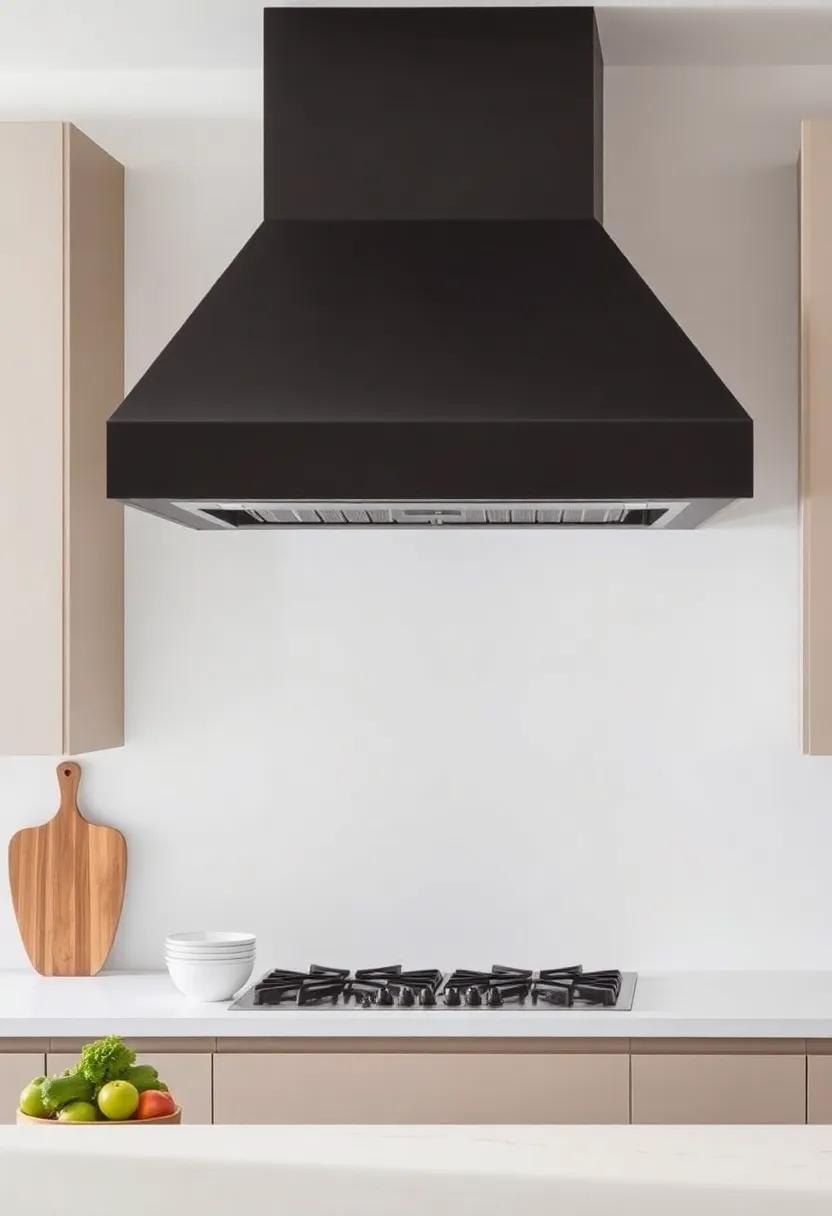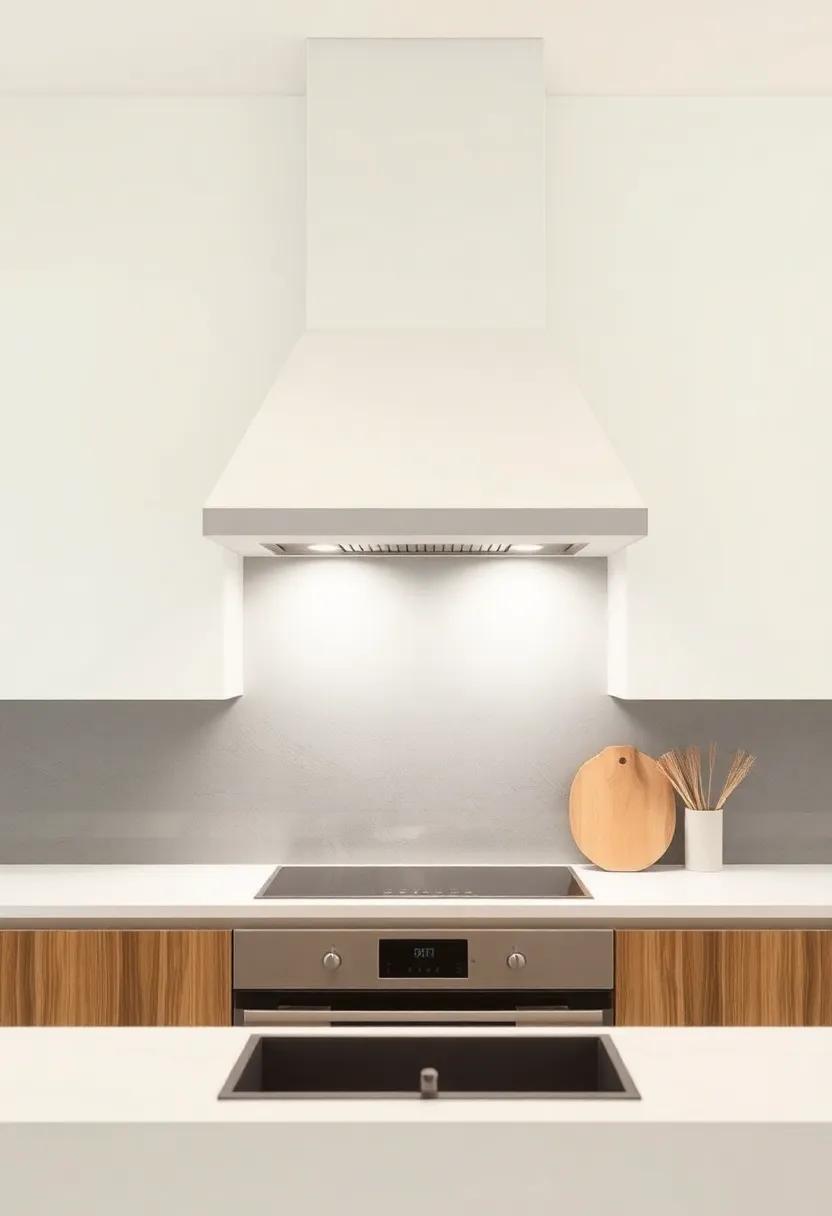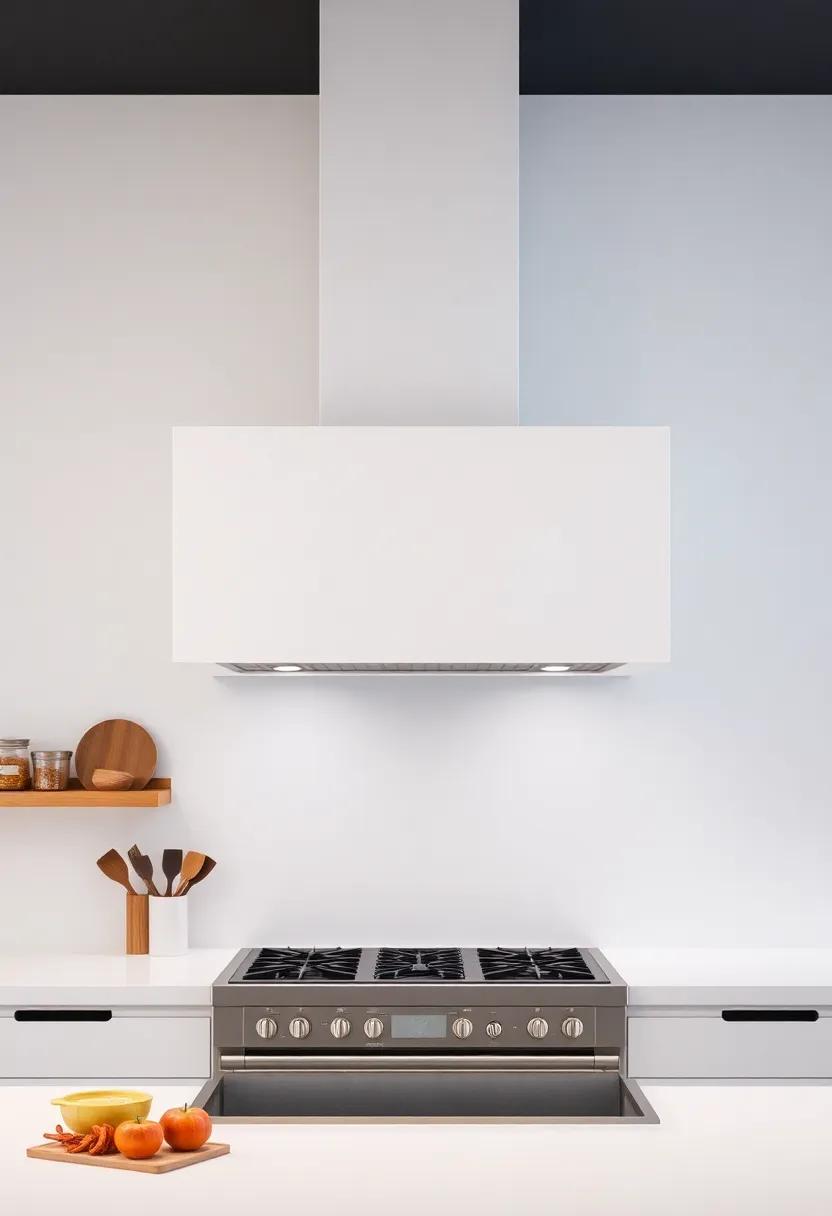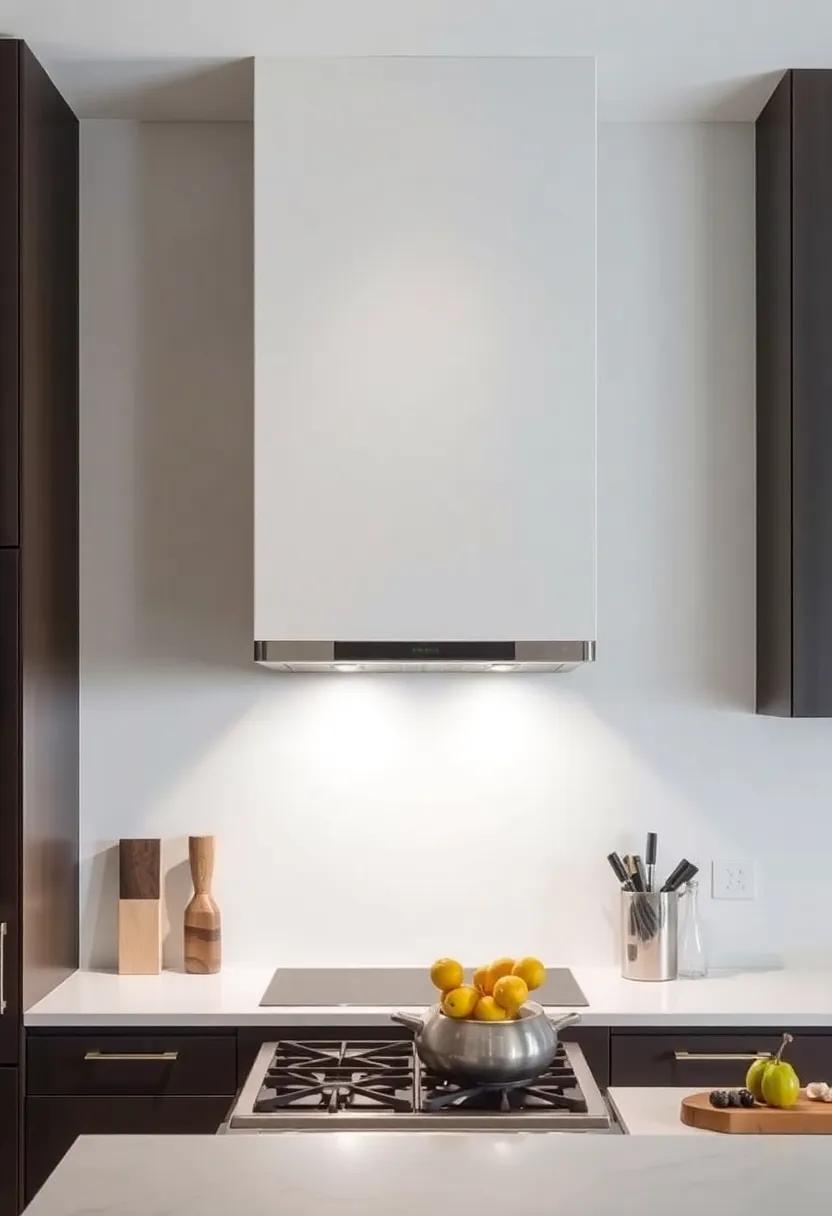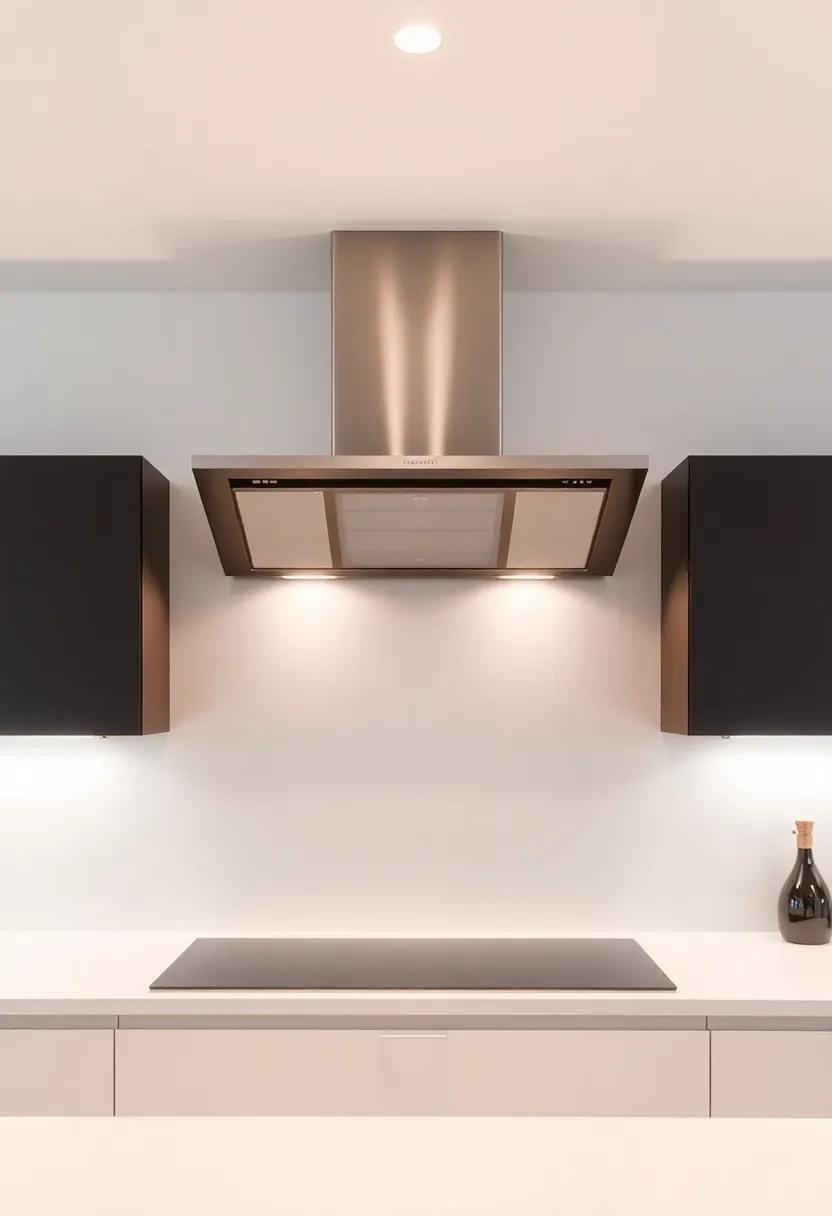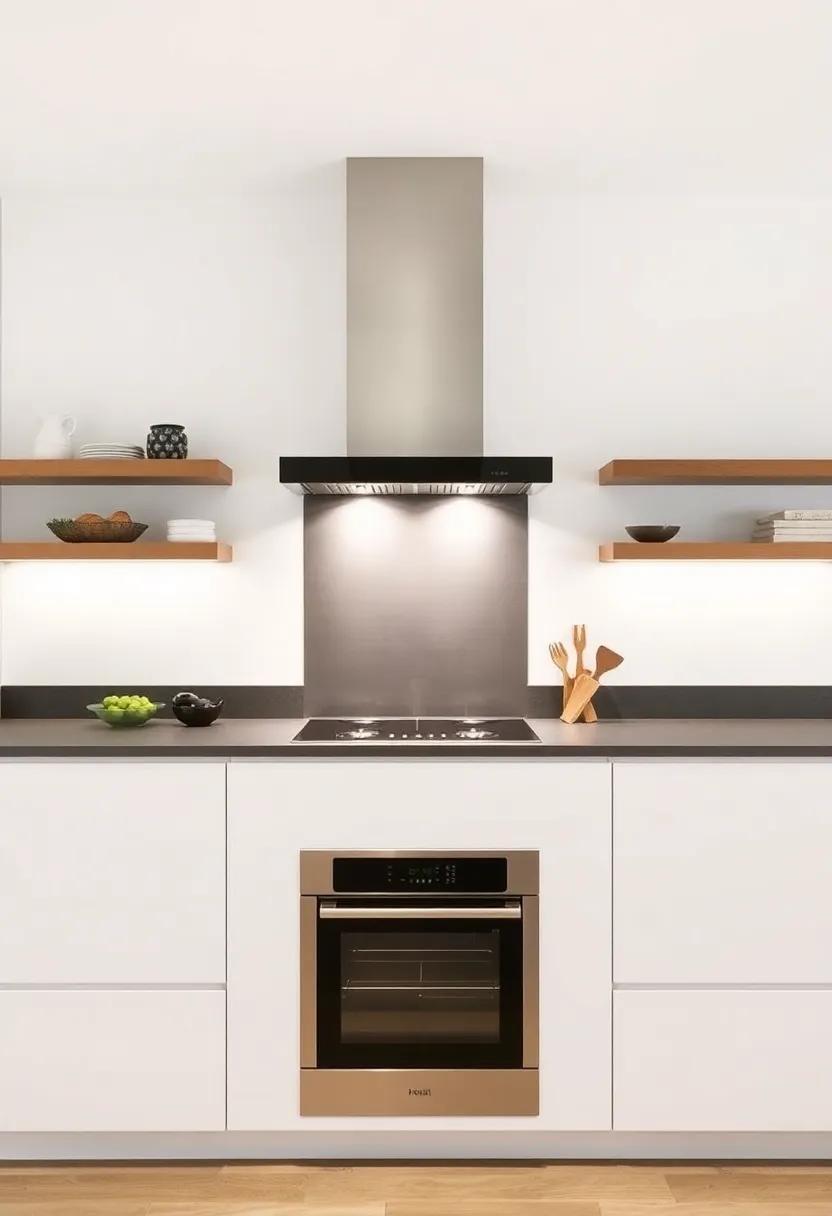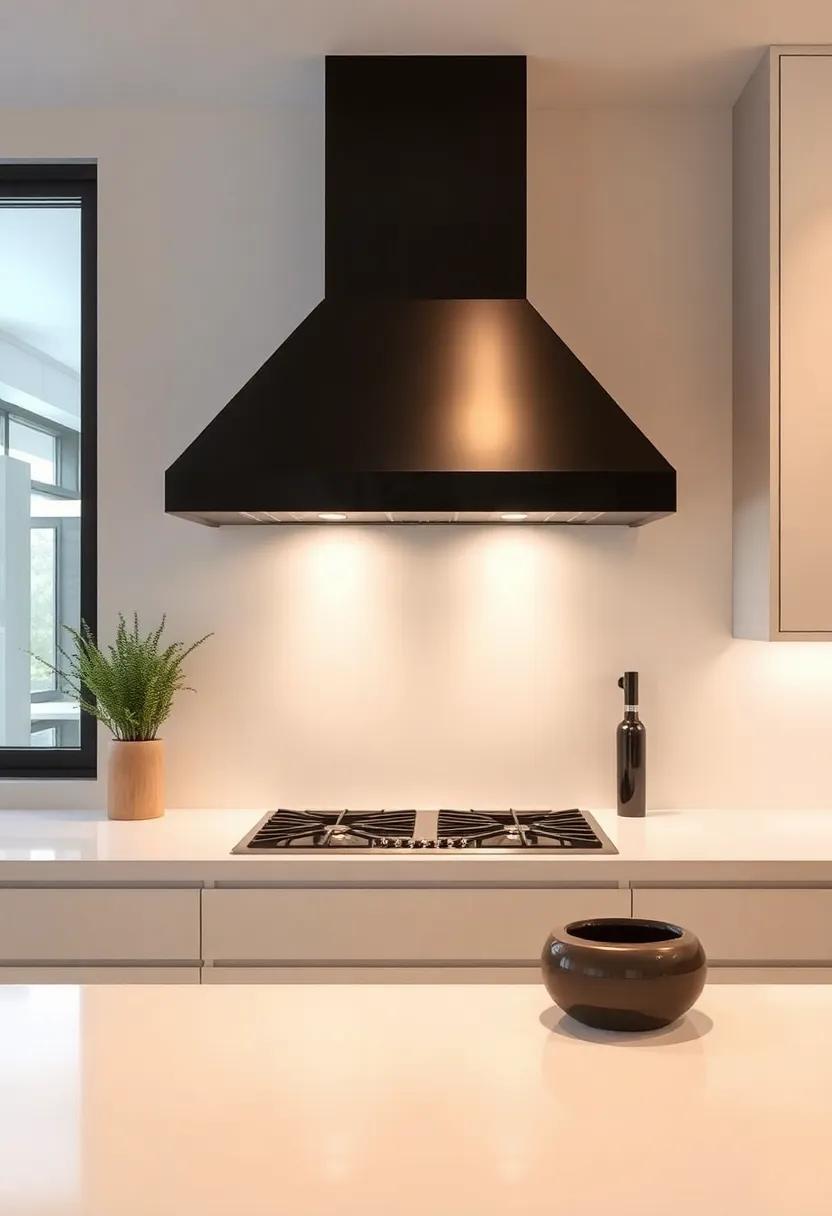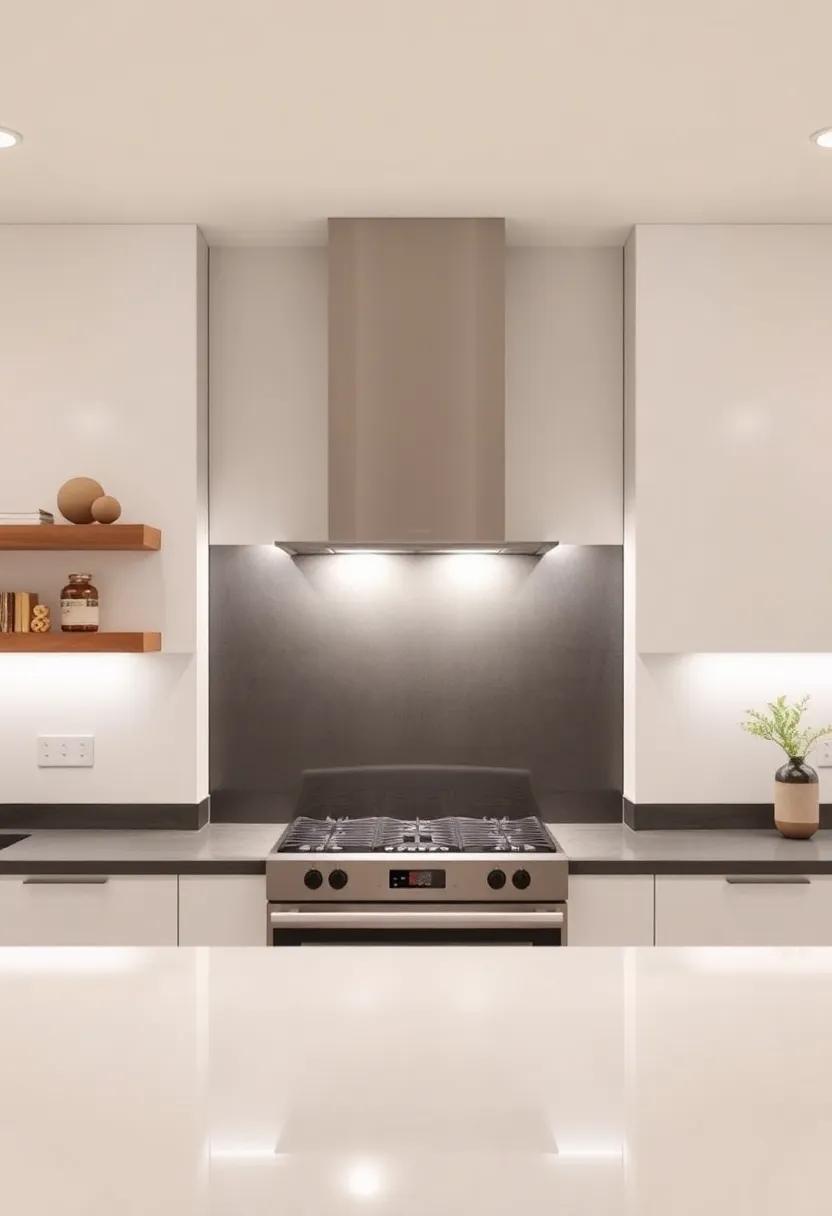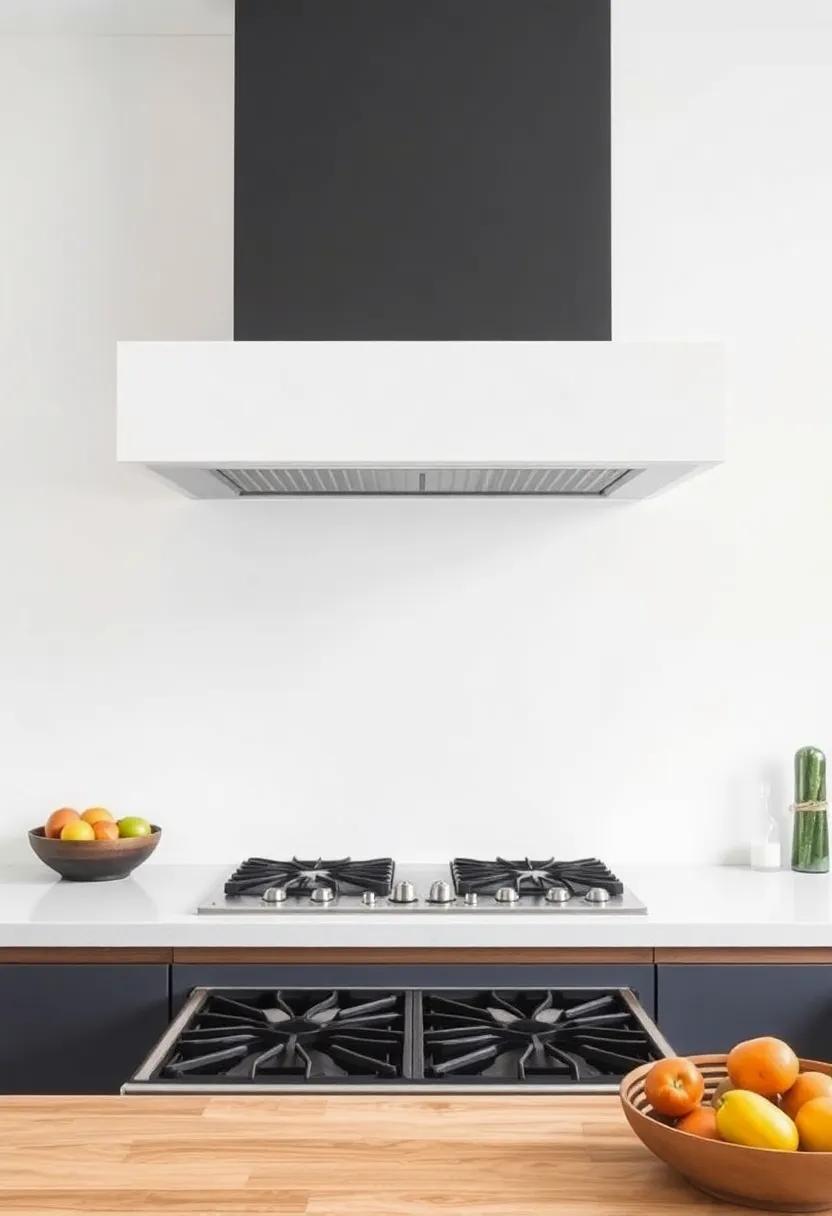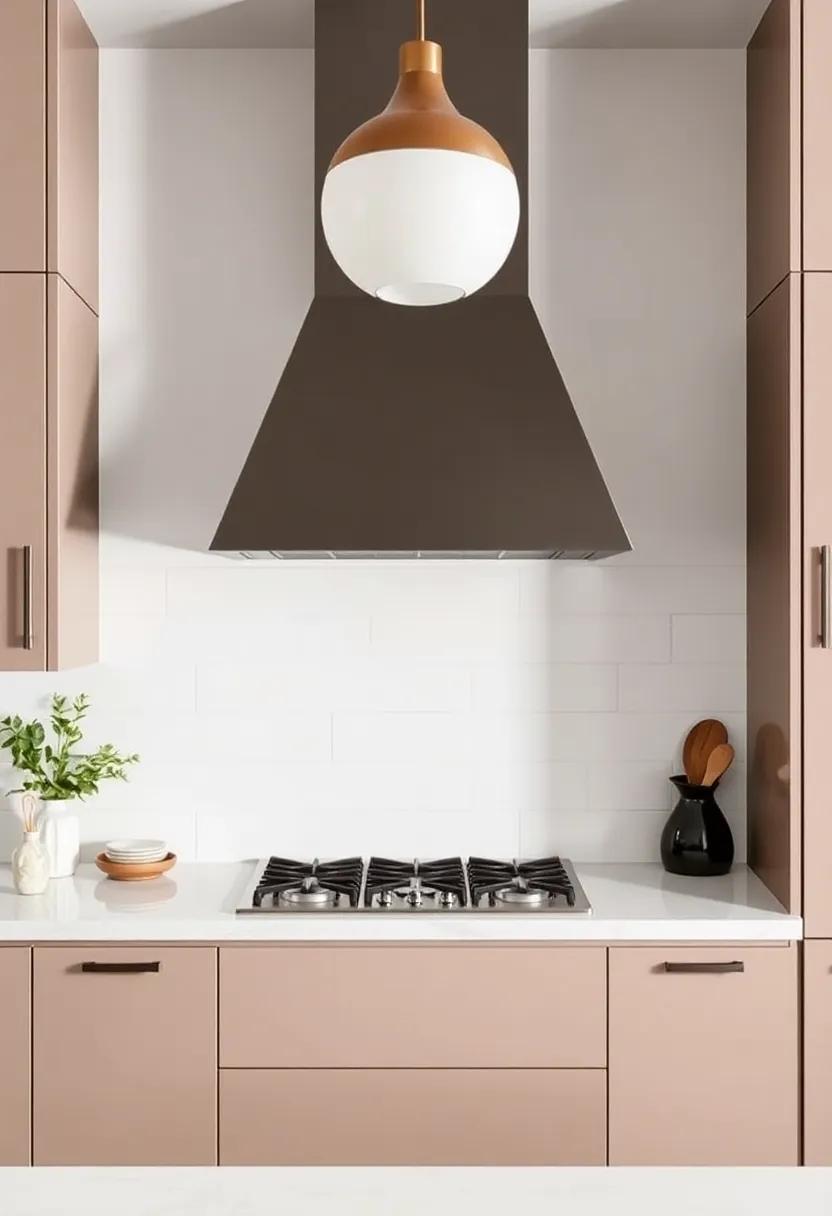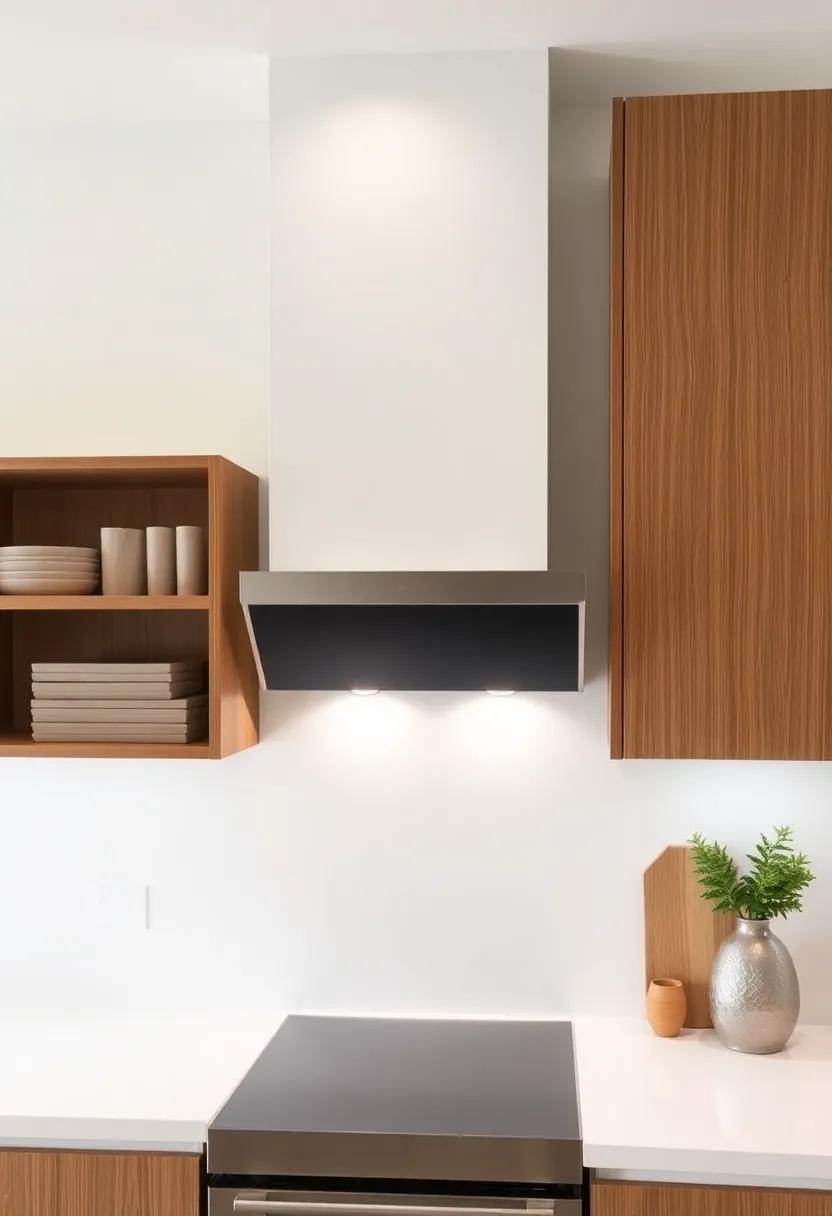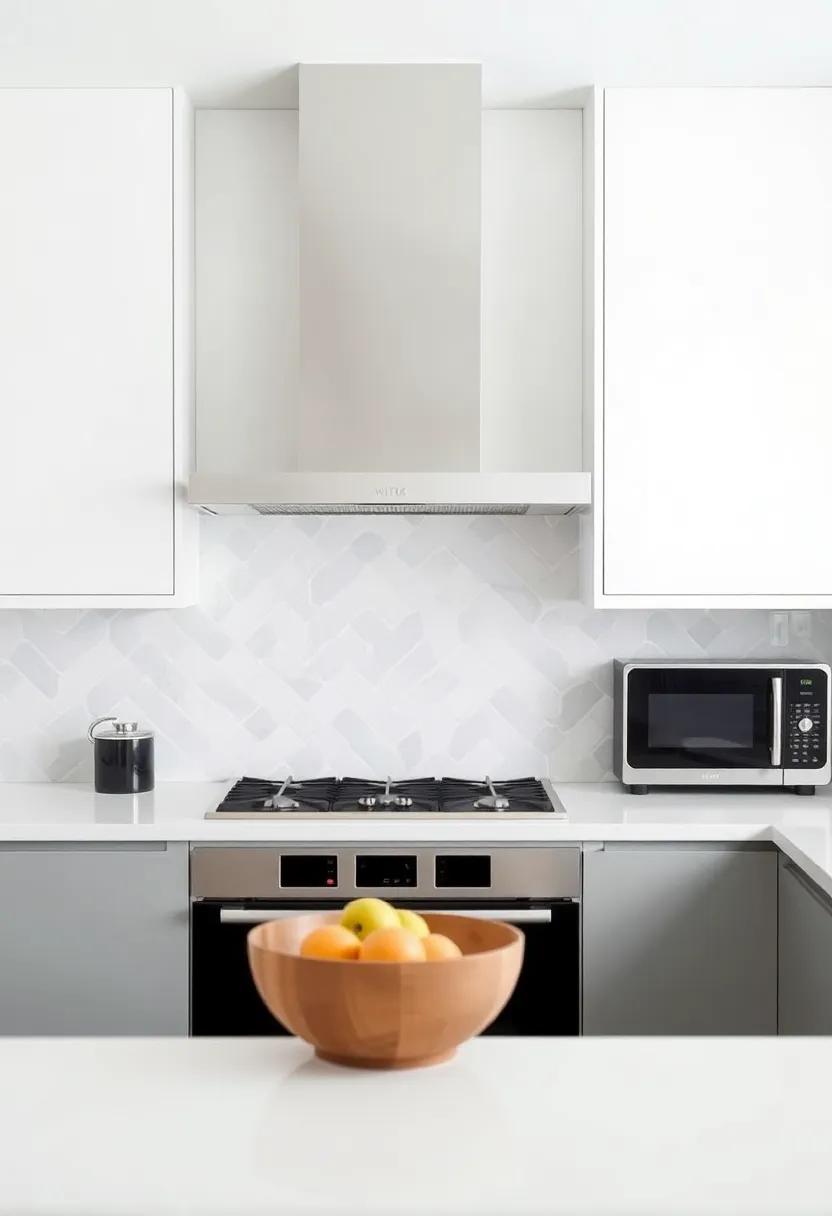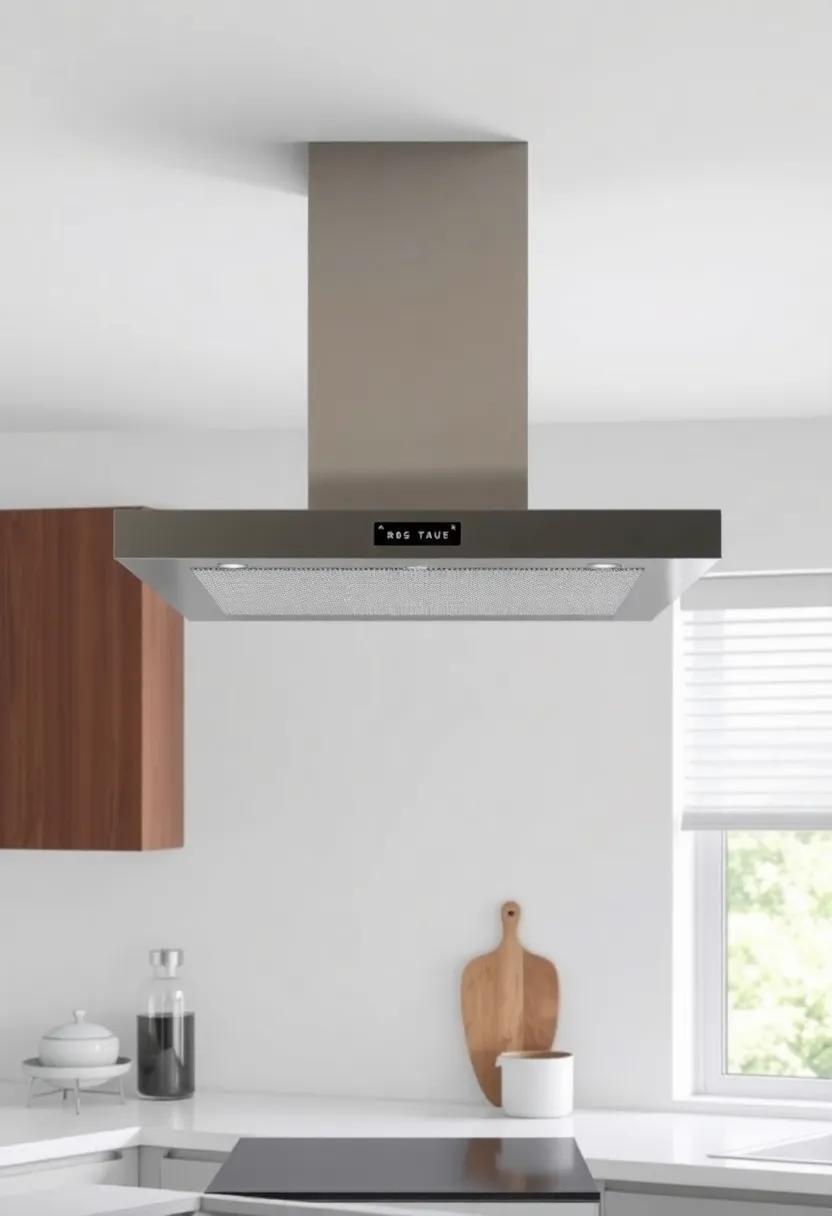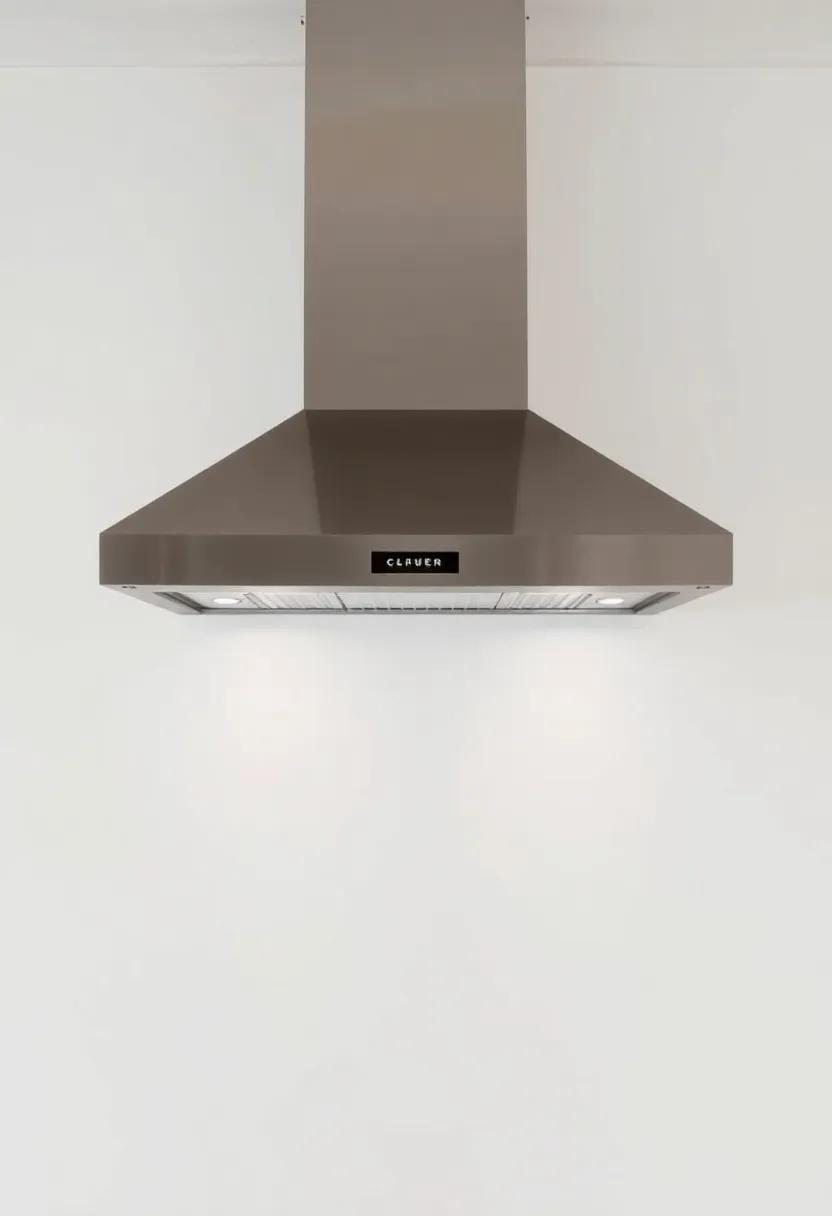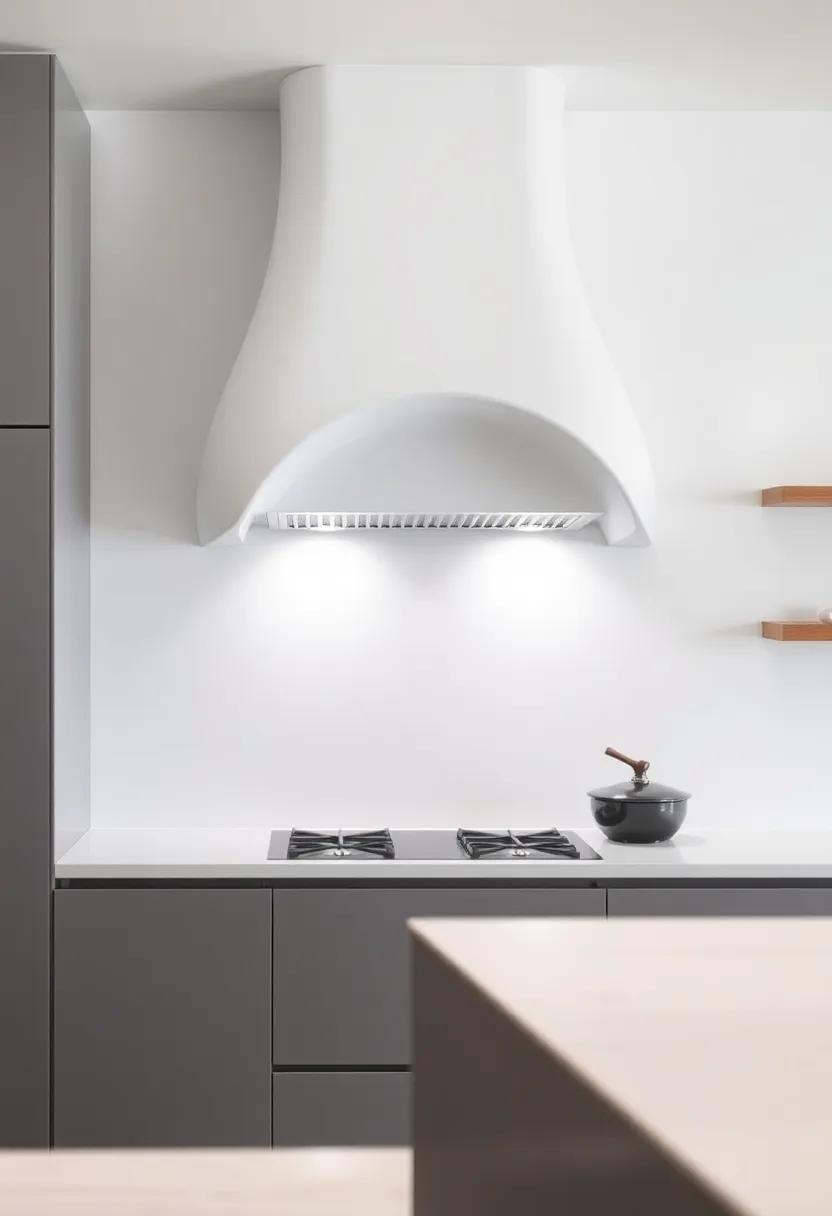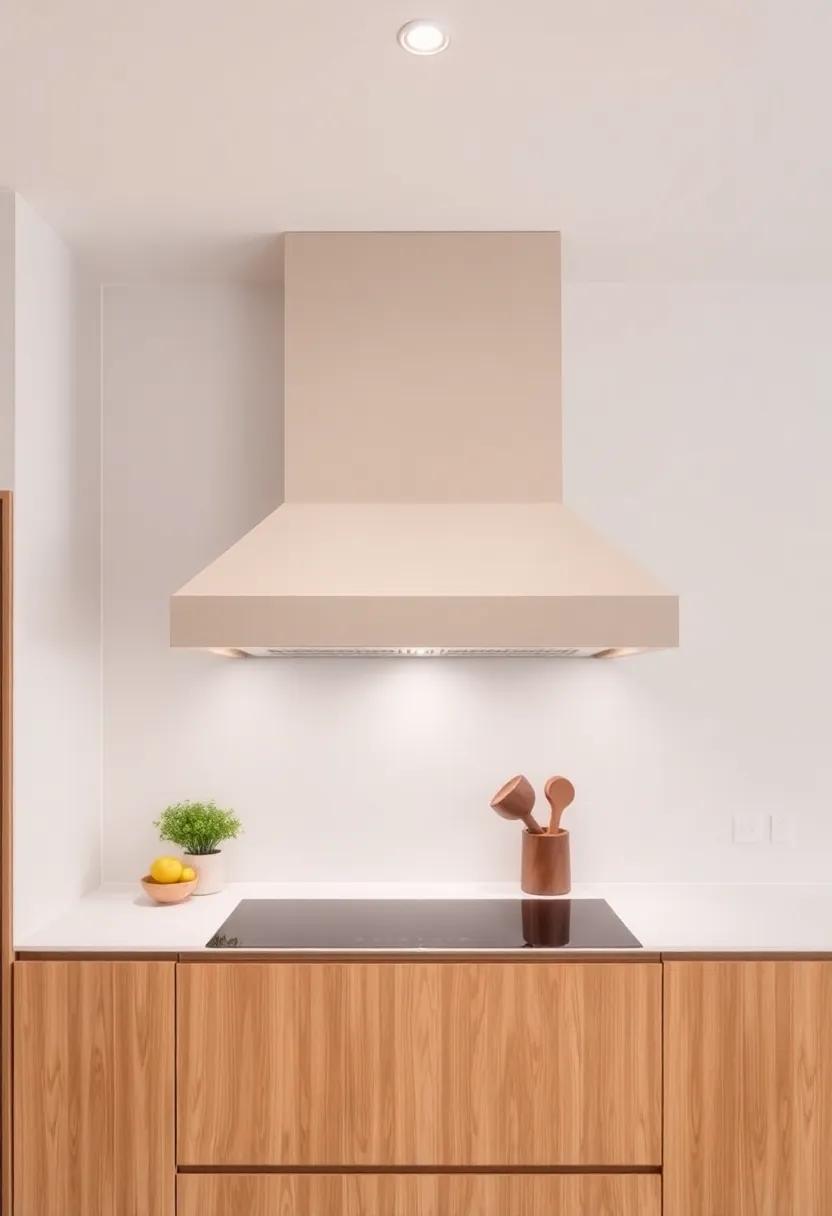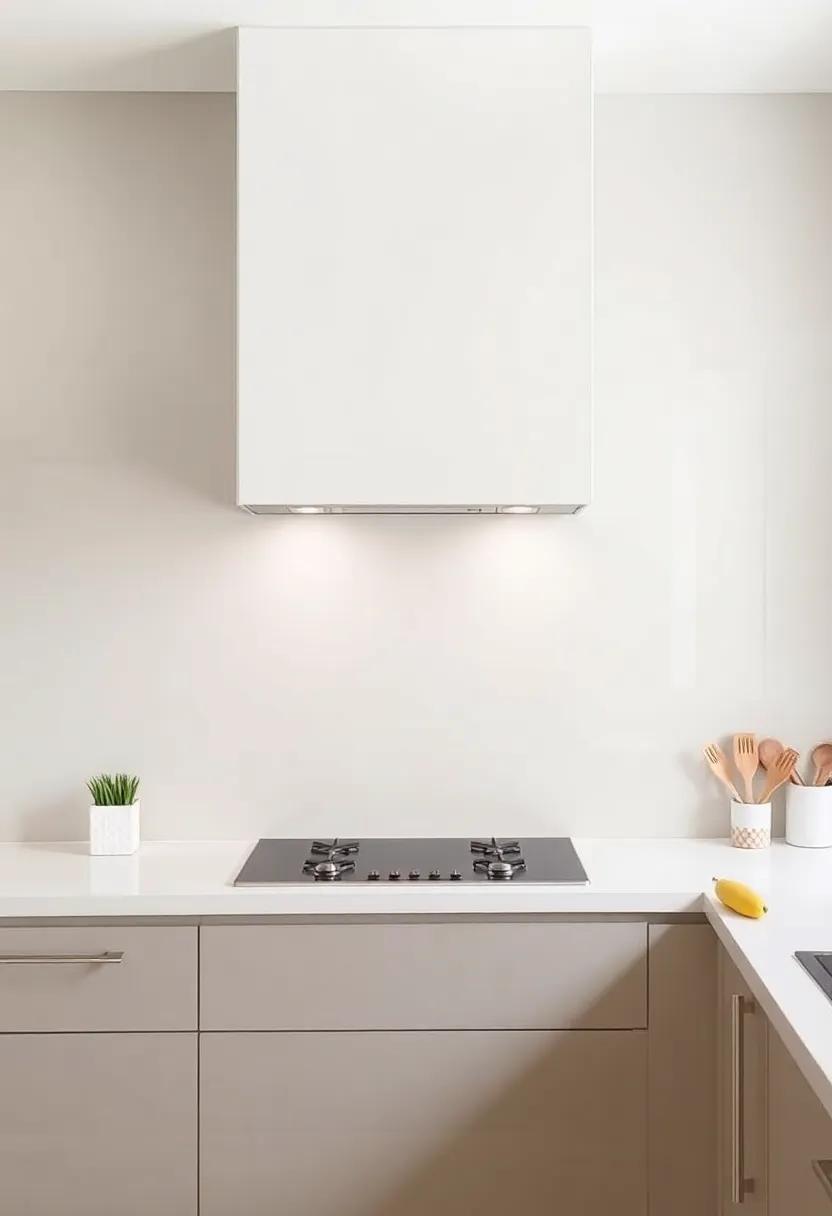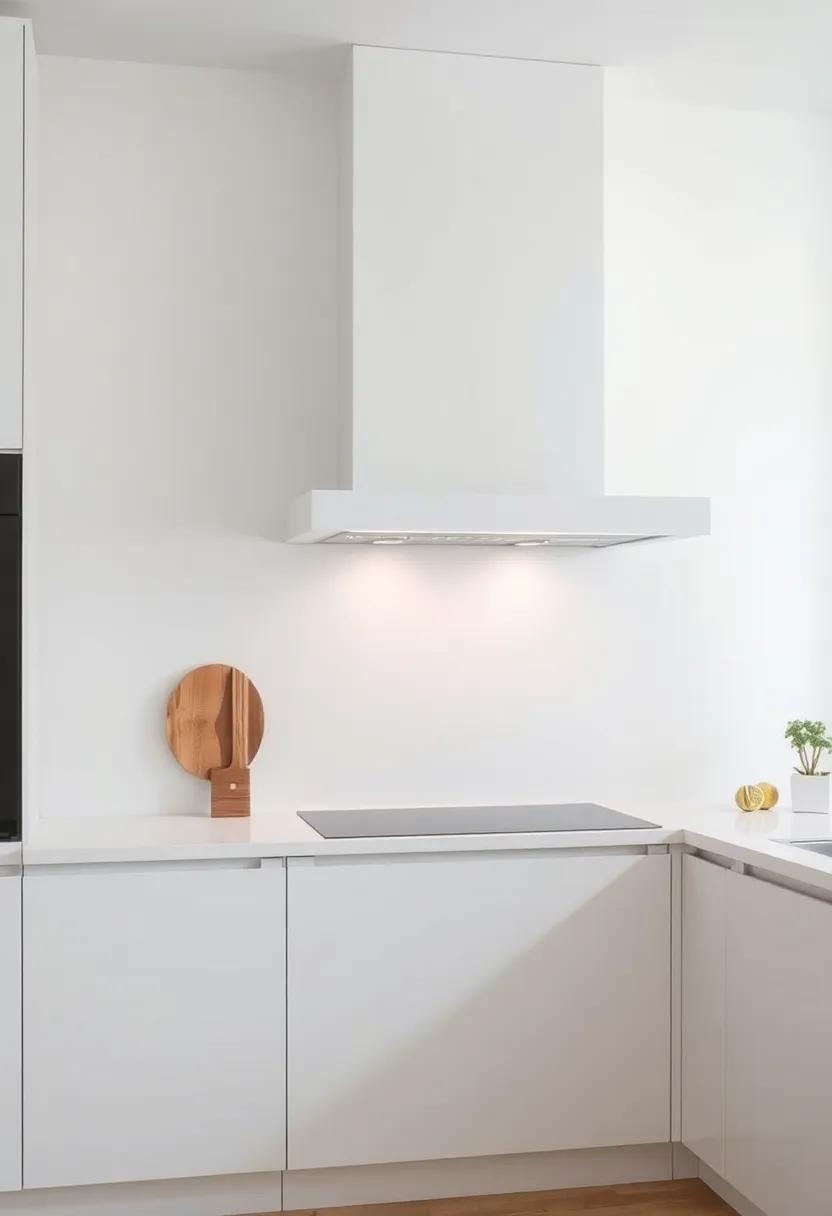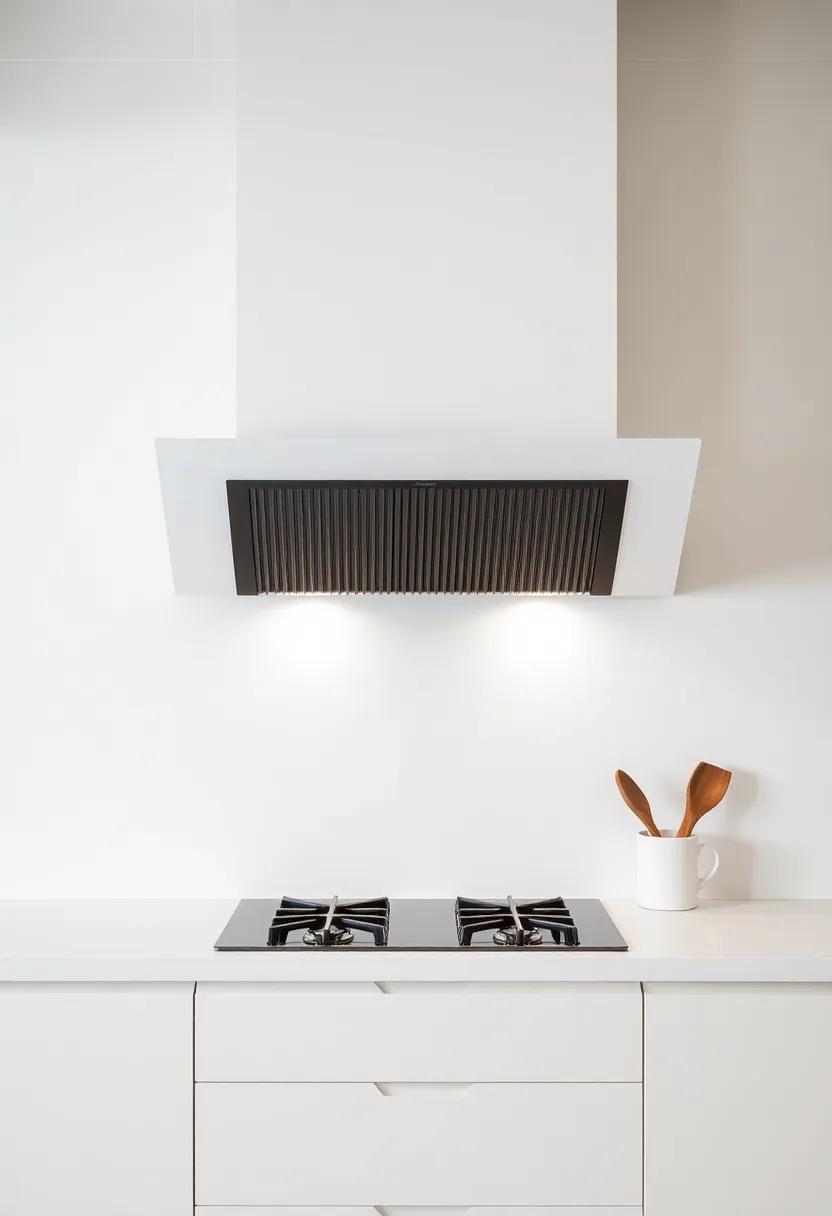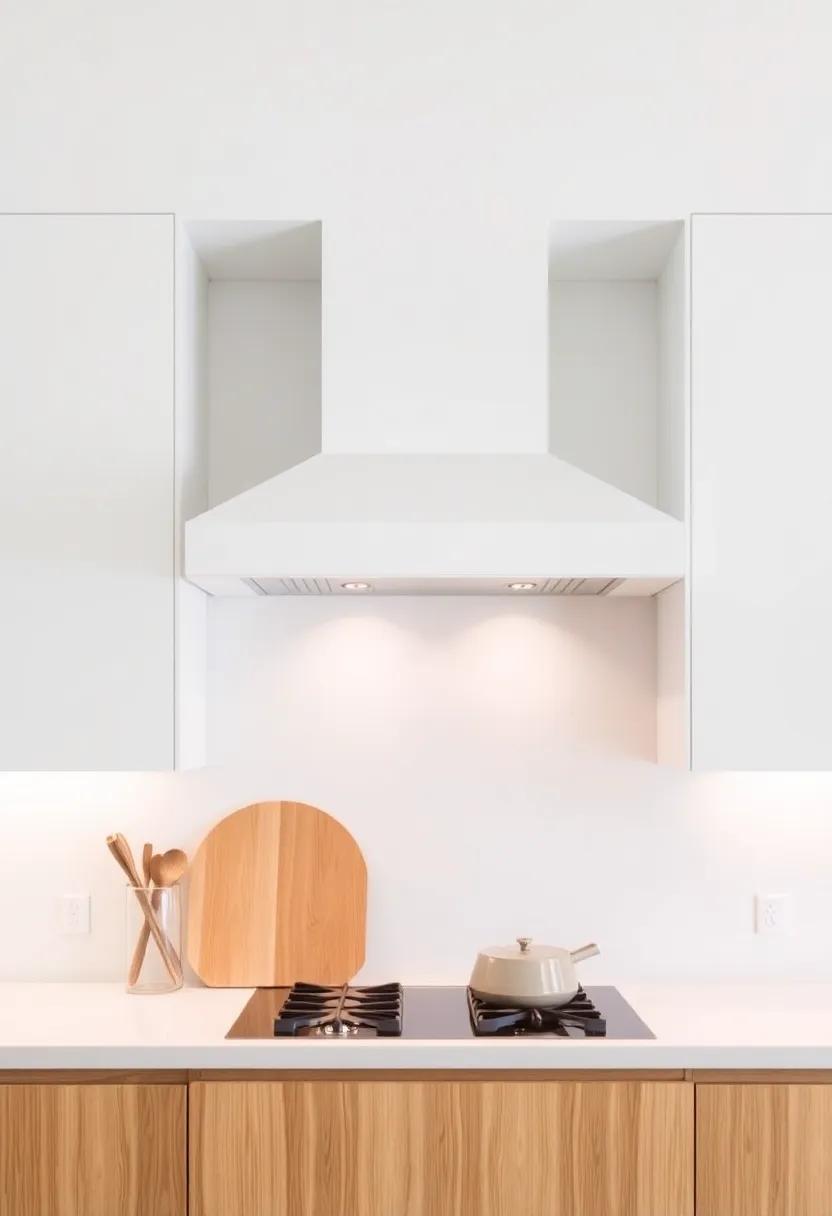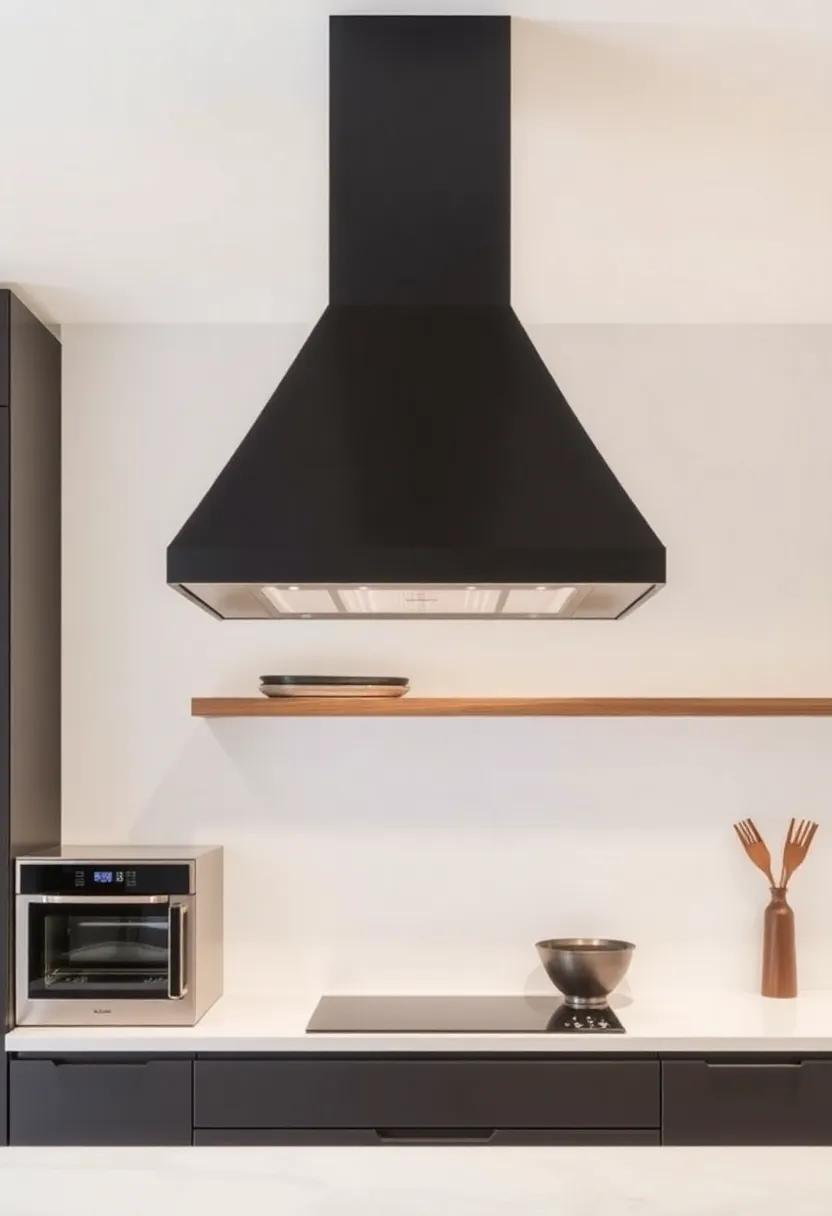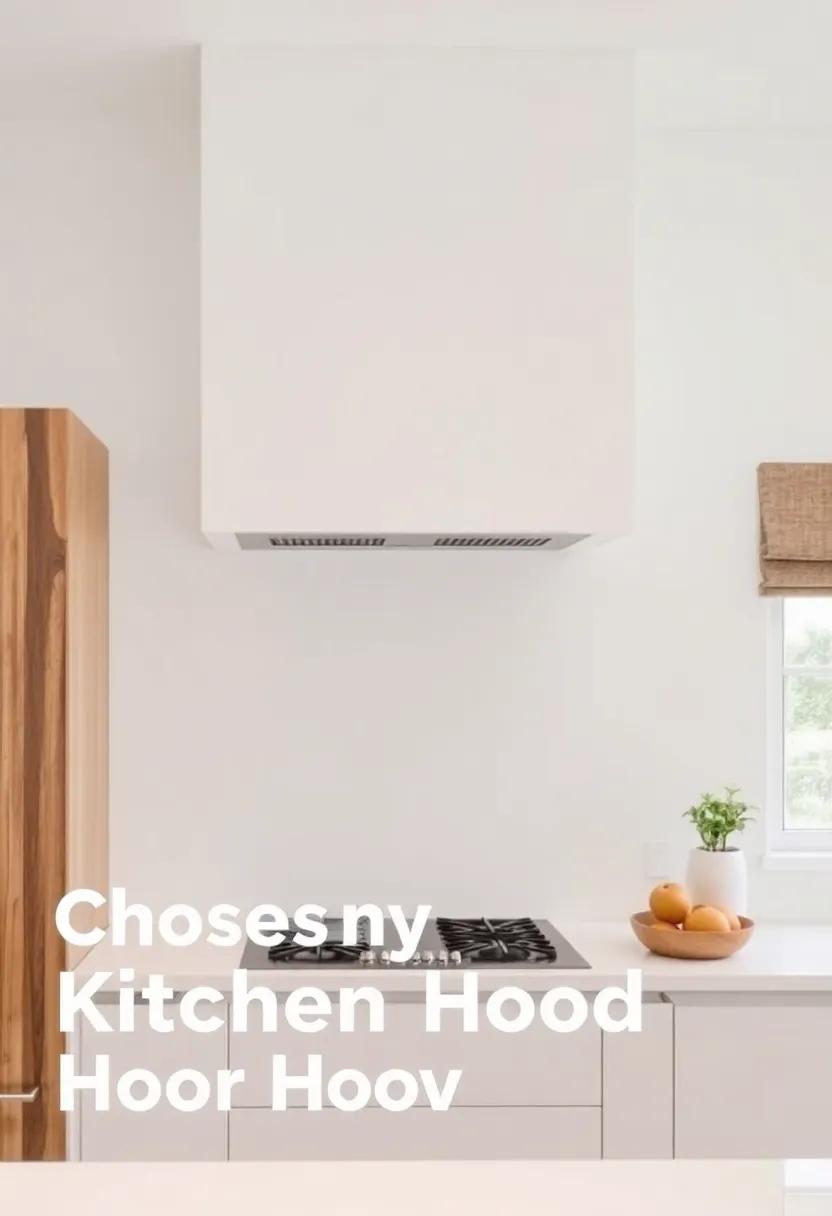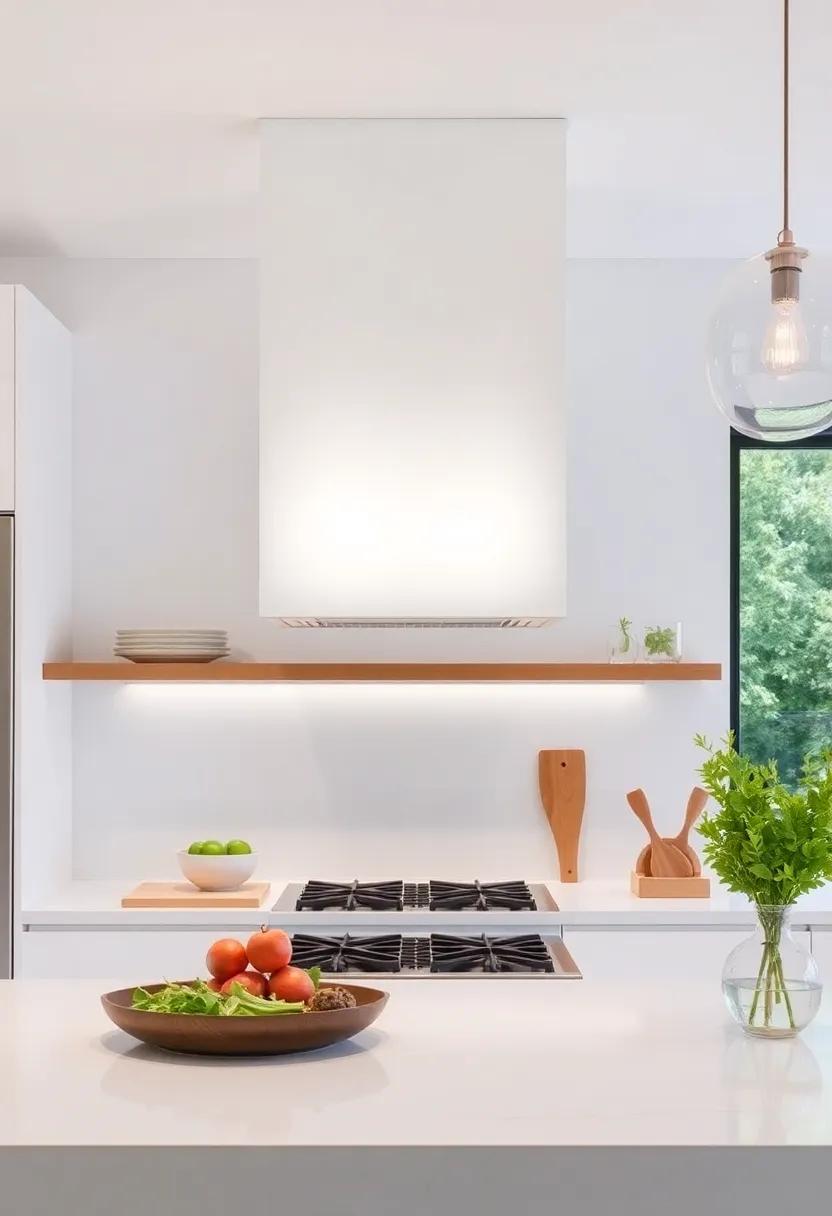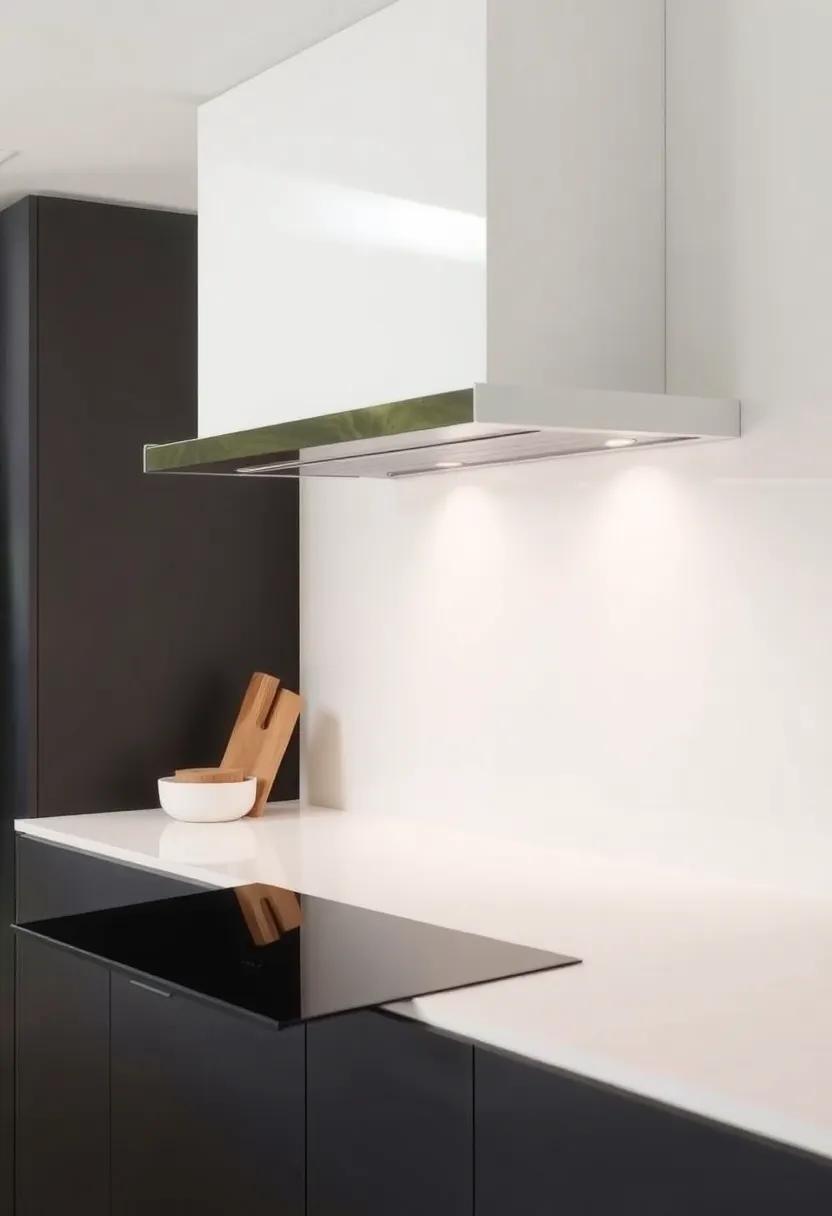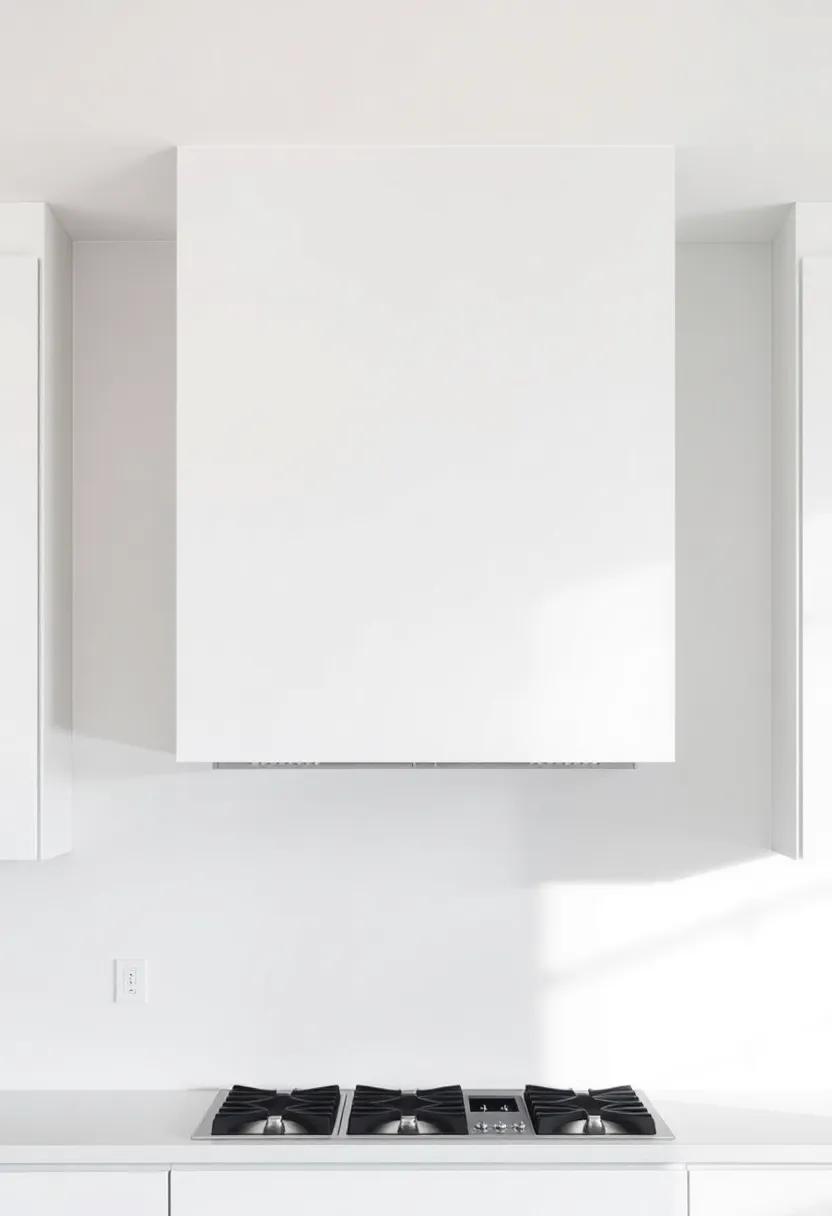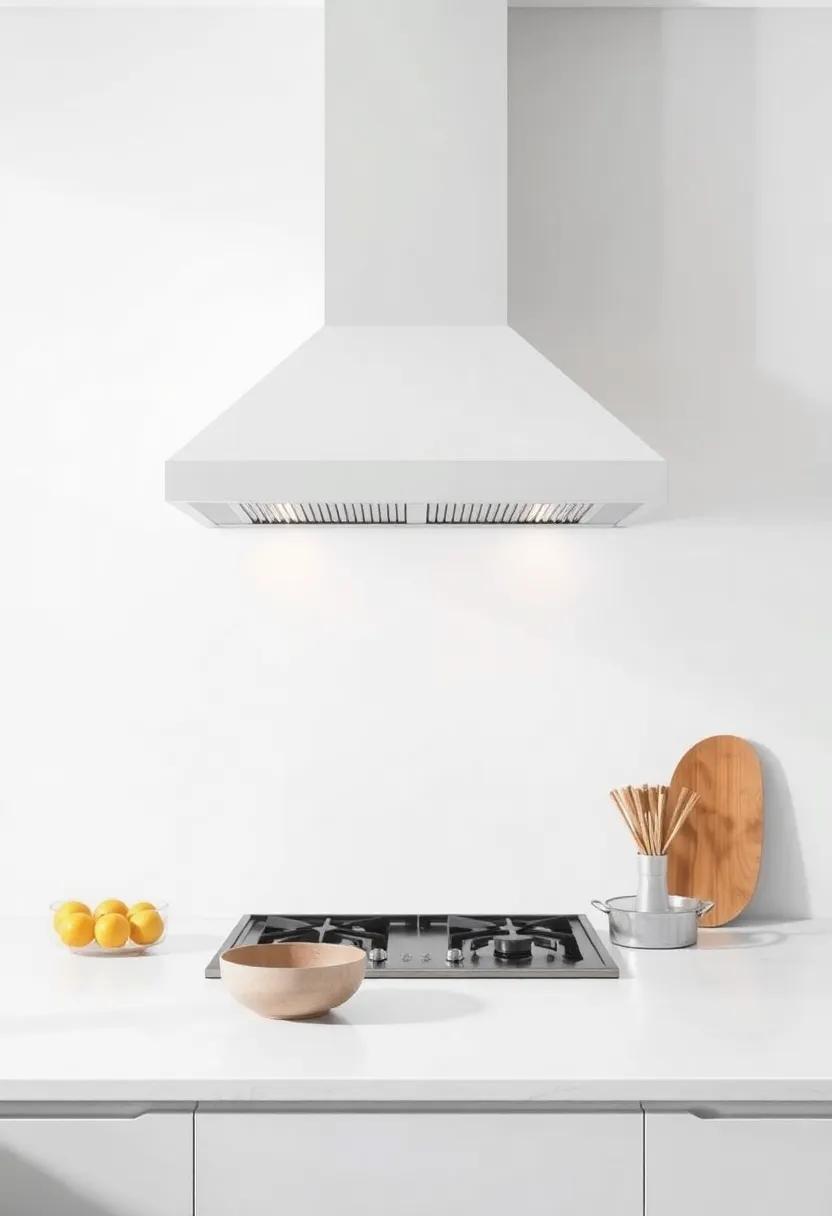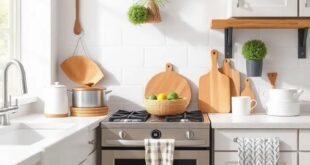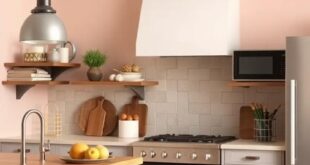In the heart of every home, the kitchen stands as a vibrant stage for culinary creativity, a space where ingredients transform through the art of cooking. frequently enough overlooked in the design conversation, the kitchen hood plays a crucial role, not merely as a functional necessity but as an aesthetic centerpiece that can elevate the entire ambiance of the room. Gone are the days of utilitarian, boxy exhausts; today’s modern kitchen hoods are statements of style and innovation. This article invites you to explore the evolving landscape of kitchen hood design, where form meets function in a blend of artistry and practicality. From sleek minimalist models to bold statement pieces, we will delve into how these essential fixtures are being reimagined to inspire and enhance culinary spaces, ultimately redefining the heart of the home.
Innovative Materials That Define the Future of Kitchen Hood Design
The evolution of kitchen hood design has led to the incorporation of cutting-edge materials that enhance both aesthetics and functionality. Modern designs frequently utilize stainless steel for its sleek appearance and durability,ensuring a robust yet stylish presence in any culinary space. Additionally, copper and brass are making a comeback, their warm tones adding a touch of elegance and sophistication. Innovative composites, such as engineered wood and resin, offer unique textures while providing moisture resistance, perfect for dynamic kitchen environments. These materials not only fulfill the practical needs of ventilation but also serve as stunning focal points that redefine the kitchen landscape.
The integration of smart technology is another trend reshaping material choices. Hoods are now being made with smart glass, which can adapt opacity based on lighting conditions, combining style with energy efficiency. Furthermore, recyclable and eco-friendly materials are gaining traction, appealing to the environmentally conscious consumer. As an example, using laminated bamboo or recycled metal can drastically reduce a kitchen’s carbon footprint while maintaining an air of sophistication. As designers continue to explore these innovative materials, a new standard in kitchen aesthetics and sustainability emerges, paving the way for culinary spaces that are as functional as they are beautiful. For further exploration of revolutionary kitchen designs, visit houzz.com.
Sustainable Ventilation Solutions for Eco-Friendly Culinary Spaces
Transforming culinary spaces into eco-friendly environments involves integrating innovative ventilation solutions that prioritize both functionality and sustainability. Modern kitchen hoods can now be designed using materials sourced from renewable resources,like bamboo or recycled metals,reducing the carbon footprint while maintaining essential performance. Additionally, energy-efficient systems such as heat recovery ventilators and variable speed motors ensure optimal air quality without excessive energy consumption. By adopting smart ventilation technologies, homeowners can easily monitor air quality and tailor ventilation to their cooking habits, leading to a more sustainable kitchen experience.
Moreover, incorporating natural ventilation techniques such as opening windows or strategically placed vents can considerably enhance indoor air quality.These solutions not only reduce reliance on mechanical systems but also promote a healthier cooking atmosphere. Some notable features of eco-conscious hood designs include:
- Silent operation: Minimizing noise pollution while cooking.
- Modular designs: Allowing flexibility for future upgrades.
- Designed for easy maintenance: Simplifying regular cleaning and upkeep.
| Feature | Benefit |
|---|---|
| Seasonal Adjustability | Optimizes airflow based on seasonal needs |
| Smart Sensors | Automates fan speed based on cooking activity |
As kitchen design evolves, it is crucial to prioritize sustainability in every aspect, including ventilation systems. For instance, organizations such as the Environmental Protection Agency provide resources for implementing green practices in home kitchens, encouraging chefs and homeowners alike to embrace eco-friendly choices.
Transforming Kitchen Hoods into Striking Design Elements
Gone are the days when kitchen hoods were merely functional pieces of equipment. Today, they have evolved into distinctive design elements that can capture attention and set the tone for the entire culinary space. Imagine a sleek, stainless steel hood contrasted with rich, wooden cabinetry, creating a stunning focal point that draws the eye. With a variety of shapes, sizes, and finishes available, homeowners and designers alike can experiment with bold colors, unique materials, and innovative styles, transforming these appliances from utilitarian devices into artistic statements.
The integration of modern technology further enhances the visual appeal of kitchen hoods.Many designs now incorporate smart features such as LED lighting and quiet ventilation systems,allowing for a perfect blend of aesthetics and functionality. consider the addition of a custom-built hood that complements the existing decor, whether it’s a rustic farmhouse design or a sleek urban aesthetic. The versatility of modern kitchen hoods offers endless possibilities, allowing them to not just fit within the space but to also elevate it to new heights. For more inspiration on how to design your dream kitchen, check out Houzz.
Integrating Smart Technology in Modern Kitchen Hood Features
Incorporating smart technology into modern kitchen hoods is transforming how we approach cooking and ventilation. These smart systems are designed to enhance not only the aesthetics of the kitchen but also its functionality.Featuring integrated sensors, smart kitchen hoods can automatically adjust their fan speed based on the amount of smoke or steam detected, ensuring optimal air quality with minimal manual intervention. Additionally, elements such as remote control via smartphone apps allow users to monitor and manage their kitchen environment from anywhere, making cooking an effortlessly connected experience.
Moreover, many advanced kitchen hoods now come equipped with features like air quality monitoring, filter status notifications, and compatibility with home automation systems. This ensures that your kitchen is not only a hub for culinary creativity but also a smart space that syncs seamlessly with your lifestyle. Here are several standout features found in today’s high-tech kitchen hoods:
- Voice Control: Hands-free operation for ultimate convenience.
- Wi-Fi Connectivity: Enables remote access and control.
- Energy Efficiency: Adaptive operation that conserves energy while maintaining performance.
- LED Lighting: Enhances visibility while cooking and adds a modern touch.
Such innovations have raised the bar for what kitchen hoods can offer, blending practical utility with cutting-edge technology. With these advancements readily available,homeowners can invest in a cohesive design that benefits both form and function,making the kitchen a true epicenter of the home. For more inspiration on modern kitchen designs, visit Houzz.
The Rise of Minimalism: Sleek Lines and Simple Designs
The evolution of interior design has seen a important shift towards simplicity, where form meets function in a harmonious dance of aesthetic and practicality. The modern kitchen hood is no longer merely a utilitarian appliance; it is indeed a statement piece that mirrors the ideologies of minimalism. With sleek lines and gently curved edges,these hoods blend effortlessly into open-concept spaces,enhancing the visual flow of the kitchen while ensuring effective ventilation. Matte finishes, integrated lighting, and intuitive controls are common features that reflect this design philosophy, allowing homeowners to embrace a clutter-free environment that brings a breath of fresh air into their culinary spaces.
To appreciate this trend, one might consider how various materials play a role in achieving a modern look. Stainless steel, glass, and even wood have become popular choices, allowing for customization that resonates with personal style. The unobtrusive designs often feature:
- Streamlined shapes that save space
- Built-in technology for quieter operation
- Energy-efficient lighting solutions
A careful selection of these elements not only enhances functionality but also creates a cohesive design narrative. For further insight into minimalist trends in home design, you can visit dwell.com.
Exploring Customizable Options for Unique Kitchen Aesthetics
In today’s culinary world, the aesthetics of a kitchen extend beyond mere functionality, encouraging homeowners to explore a variety of personalized options. Unique designs not only elevate the essence of the kitchen but also create a harmonious blend of aesthetics and practicality. Consider integrating customizable elements such as:
- Materials: Choose from stainless steel, wood, or even glass, each bringing a different ambience and texture.
- Finishes: Matte, glossy, or textured finishes can dramatically change the kitchen’s overall appearance.
- Color Schemes: Select hues that resonate with your personal taste; bold colors for drama, or soft tones for tranquility.
Moreover,the integration of personalized lighting options can further amplify the unique character of your kitchen hood. options such as recessed lighting or under-cabinet LEDs not only enhance visibility but also play a crucial role in setting the mood. For those looking to get even more creative,consider the following:
| Custom Element | Impact |
|---|---|
| Customizable features | Enhances functionality while maintaining style. |
| Ventilation Systems | Improves air quality without compromising design. |
| Unique Shapes | Transforms the kitchen into a visual statement. |
These choices invite creativity and individuality into the kitchen, inviting both culinary artistry and aesthetic pleasure. With a little imagination and the right resources, your kitchen can become a showcase of style and functionality. For inspiration, explore various kitchen designs at Houzz.
The Importance of Lighting in Kitchen Hood Design trends
In the realm of kitchen design, the role of lighting transcends mere functionality, transforming kitchen hoods into stunning focal points. As homeowners gravitate towards open-concept layouts, the prominence of the kitchen hood beckons the need for thoughtful illumination that enhances both form and function. Striking a balance between ambient, task, and accent lighting not only elevates the aesthetic appeal but also plays a vital role in enhancing the cooking experience. Consider incorporating fixtures that complement the design and finish of the hood, creating a cohesive look that invites culinary creativity.
Modern trends are increasingly favoring LED lighting solutions, which offer energy efficiency while enabling a spectrum of color temperatures to set the desired mood. Integrated lighting within the hood itself can provide direct illumination on the cooking surface, ensuring optimal visibility during meal prep.Moreover, layering different types of lighting allows for versatility; switch from bright, focused light for cooking to warm, ambient light for entertaining. Here’s a brief overview of popular lighting techniques that harmonize beautifully with kitchen hood designs:
| Lighting Type | purpose |
|---|---|
| Under-cabinet Lighting | Illuminates countertops and enhances visibility. |
| Pendant Lights | Adds a decorative element above the kitchen island. |
| Recessed Lighting | Provides general lighting without occupying visual space. |
| backlighting | Creates a soft glow, highlighting the hood’s design. |
As we embrace these innovations,exploring sources like Architectural Digest can provide inspiration and ideas for integrating effective lighting solutions into kitchen hood design. By blending style with practical lighting strategies, it’s possible to create a culinary space that captures attention and fosters creativity.
Embracing Color: bold Choices for Contemporary Kitchen hoods
When it comes to modern kitchen design, color is becoming an increasingly important element, allowing homeowners to express their personality while maintaining functionality. Bold kitchen hoods not only serve as essential appliances but can also become stunning focal points in any culinary space. Designers are breaking away from the traditional stainless steel and opting for vibrant hues such as striking reds, deep blues, and soft pastels, transforming these utilitarian structures into eye-catching pieces of art. By incorporating an unexpected color palette, homeowners can create a statement piece that truly resonates with their style, enhancing the overall ambiance of the kitchen area.
To achieve the perfect look, consider pairing your colorful kitchen hood with complementary elements that harmonize with the overall design. Here are some ideas for creating balance in your kitchen:
- Countertops: Coordinate colors with your countertops to create a seamless flow.
- Backsplashes: Use patterned tiles that include hues from the hood for a cohesive look.
- Cabinets: Opt for neutral cabinetry to allow your hood to stand out while maintaining elegance.
- Accessories: Integrate small kitchen gadgets or decor in similar shades to reinforce your design choice.
| Color Choices | Styling Tips |
|---|---|
| Bold Red | Pairs well with white or natural wood elements for a fresh contrast. |
| Deep Blue | Complement with brass hardware for a touch of sophistication. |
| Soft Pastels | Mix with light gray or beige for an airy, modern feel. |
By embracing these bold color choices in your contemporary kitchen hood design, you’re not just enhancing the aesthetic; you’re creating a personalized culinary space that inspires creativity and joy. Explore more about kitchen design trends on Architectural Digest.
Vintage Inspirations: Blending Nostalgia with Modern Functionality
Embracing the charm of days gone by, contemporary kitchen hood designs have found a way to incorporate vintage aesthetics while ensuring modern efficiency. Think sleek lines paired with retro finishes, such as polished brass or distressed copper, which evoke a sense of nostalgia yet serve a practical purpose. Homeowners can now choose from an array of styles that celebrate the beauty of yesteryear, seamlessly merging the old with the new. Key features that accentuate this blending include:
- art Deco patterns that reflect elegance and sophistication.
- Farmhouse-inspired designs that provide a rustic touch while ensuring professional-grade performance.
- Customizable color palettes that allow personalization without compromising functionality.
in addition to aesthetics,vintage-inspired kitchen hoods often come equipped with the latest technologies. Innovative engineering ensures that these culinary staples not only look stunning but also operate quietly and efficiently,keeping your kitchen free from unwanted smoke and odors.To illustrate this harmony of design and utility, consider the following comparison:
| Style | Feature | Functionality |
|---|---|---|
| Retro Chic | Smooth curves and bright colors | Quiet operation with optimal ventilation |
| Industrial Vintage | Stainless steel finish with exposed elements | High-efficiency filters for reduced smoke |
| Rustic Farmhouse | Wood accents combined with metal details | Powerful extraction capabilities |
By reviving these classic elements in modern design, homeowners can create a kitchen space that not only serves as a cooking area but also as a personal expression.Explore more about vintage design influences at Houzz.
Maximizing Space with Compact and Functional Hood Designs
In the quest for enhancing culinary environments, the integration of compact and functional hood designs plays a pivotal role. These hoods not only serve their primary purpose of ventilation but also offer a stylish accent that seamlessly blends with modern kitchens.By prioritizing sleek profiles and innovative materials, homeowners can achieve a clutter-free space that exudes elegance. Homeowners should look for features such as:
- Low-Profile Designs: These hoods sit closer to the cooktop,maximizing headspace and providing a clean visual line.
- integrated Lighting: Built-in LED lighting illuminates cooking areas while reducing the need for additional fixtures.
- Smart Technology: sensors and smart controls enhance functionality,allowing users to adjust settings with ease.
furthermore, the use of multi-layered materials and textures can elevate the aesthetic appeal of kitchen hoods while optimizing their performance. Lightweight metals,glass,and unique finishes allow for customization that compliments any decor style. A detailed comparison of popular compact designs reveals the versatility and practicality they offer:
| Design Type | Advantages | Ideal for |
|---|---|---|
| Wall-Mounted | Efficient space utilization, easy installation | Small kitchens |
| Under-Cabinet | Maximized counter space, discreet appearance | galley kitchens |
| Island | Central focal point, enhances airflow | Open-concept layouts |
For more inspiration on modern kitchen designs, visit Architectural Digest.
Creating Harmony: Coordinating Kitchen Hoods with Overall Decor
In modern kitchen design, the kitchen hood evolves from a purely functional element to a design focal point that seamlessly blends with the overall aesthetic. choosing a hood that resonates with the kitchen’s color palette and material choices is crucial. Consider the following aspects when selecting a range hood:
- Finish: Opt for stainless steel, matte black, or even a bold color that accents your cabinets.
- Style: Select between styles like wall-mounted,island,or under-cabinet that complement cabinetry and appliances.
- Shape: Geometric shapes can add modern elegance, while softer curves may lend a more traditional feel.
- Lighting: Integrated lighting in the hood can enhance both functionality and ambiance.
It’s essential to think holistically about your kitchen design when incorporating a hood.Invest in a design that not only serves its purpose but also enhances the overall atmosphere. To achieve a cohesive look, consider how the hood interacts with other elements like:
- Backsplash: Use materials or colors that either contrast or complement the hood.
- Counters: Coordinate the finish and texture with countertops to create a harmonious flow.
- Fixtures: Ensure that hardware and lighting fixtures match stylistically to reinforce unity.
Implementing these design strategies not only elevates the functionality of your culinary space but also offers a unique chance for personal expression and creativity.For more inspiration on kitchen design,visit Houzz.
The Role of Kitchen Hoods in Indoor Air Quality Improvement
Modern kitchen hoods serve as more than just aesthetic enhancements to culinary spaces; they play a crucial role in safeguarding indoor air quality. By effectively venting cooking fumes, smoke, and odors, these appliances help maintain a healthier home environment. When installed correctly, kitchen hoods can significantly reduce the presence of airborne pollutants, ensuring that harmful particles from cooking do not linger in the atmosphere. Some key benefits include:
- reduction of airborne grease: Kitchen hoods capture grease particles, preventing them from settling on surfaces.
- odor elimination: Efficient hoods can dramatically disperse unpleasant cooking odors.
- Humidity control: Hoods help manage the moisture produced during cooking, reducing mold growth risks.
Furthermore, the integration of advanced filtration systems within modern kitchen hoods can elevate their efficiency. High-performance models not only filter noxious fumes but also cycle in fresh air,contributing to a more balanced internal environment. This aspect is essential in open-concept homes where kitchens and living areas are interconnected. For a deeper look into various kitchen hood models and their performance in enhancing air quality, you can explore resources provided by Houzz. Below is a comparison of different hood types:
| Type of Hood | Efficiency | Noise Level |
|---|---|---|
| Under-Cabinet | medium | Low |
| Wall-Mount | High | Medium |
| Island Range | High | Medium-High |
Efficient Exhaust Systems: Balancing Performance and Style
When it comes to modern kitchen designs, exhaust systems have evolved beyond mere utility. Today’s consumers seek a harmonious blend of form and function, and manufacturers are responding with stylish yet efficient alternatives. Sleek lines, innovative materials, and customizable features set contemporary kitchen hoods apart from their traditional counterparts. Homeowners can now choose designs that seamlessly integrate with the overall aesthetic,whether it’s a minimalist culinary space or a bold,industrial kitchen. Key features to consider when selecting an exhaust system include:
- Noise Level: A quiet operation is essential for maintaining a pleasant cooking environment.
- Airflow Rate: The efficiency of an exhaust system is measured in CFM (cubic feet per minute), affecting how well it removes smoke and odors.
- Filter Type: Advanced filters can enhance air quality while being sleek in design.
Moreover,the style of an exhaust system can significantly contribute to the kitchen’s ambience. From traditional chimney-styles to modern island hoods, the designs available today cater to every taste. Homeowners can even opt for finishes like copper or stainless steel to add a touch of elegance. An effective exhaust system not only boosts kitchen performance but also enhances visual appeal, ensuring that it effectively works in tandem with the overall architectural vision. As kitchens become more central to home life, investing in a functional yet stylish hood is a choice that balances contemporary design with practical needs. For more inspiration on modern kitchen design, explore Architectural Digest.
Artistic Flair: Unique Shapes and Designs for Kitchen Hoods
In the realm of kitchen design, the hood is no longer just a functional necessity; it has transformed into a stunning focal point. Designers are exploring asymmetric shapes, geometric patterns, and organic silhouettes to create hoods that stir the imagination. From sleek, angular forms that evoke a contemporary edge to rounded, sculptural pieces that add warmth and character, these innovative designs embrace an aesthetic that complements both modern and traditional kitchens. the use of bold materials such as copper,brass,and even glass creates striking contrasts,inviting culinary enthusiasts to view their workspace as an artful expression of personal style.
Beyond materials and shapes, customization plays a pivotal role in kitchen hood design. Homeowners can choose from a variety of finishes and textures to ensure that their kitchen hood pairs seamlessly with existing cabinetry and decor. Here are some popular design elements:
- Textured metals: Finish your hood with hammered or brushed metal for a rustic look.
- Integrated lighting: Add LED strips or pendant lights to enhance the visual appeal.
- Custom color palettes: choose colors that echo the rest of your kitchen for a coherent look.
If you’re curious about combining function and style in your kitchen,explore brands like Bertazzoni that focus on innovative designs and features tailored for your culinary delight.
Cultural Influences on Modern Kitchen Hood Architecture
The architectural design of modern kitchen hoods is deeply influenced by various cultural aesthetics,resulting in a blend of functionality and artistic expression. Scandinavian minimalism, with its focus on simplicity and natural materials, often inspires sleek, understated hood designs that seamlessly integrate into open-concept kitchens. On the other hand, Mediterranean-style hoods frequently showcase intricate tile work and rustic charm, evoking a sense of warmth and tradition. These cultural elements tell a story, allowing the kitchen hood to serve not just as an appliance, but as a statement piece reflecting the homeowner’s heritage and personal taste.
Moreover, the fusion of different styles has given rise to innovative designs that break conventional boundaries. designers are increasingly exploring industrial aesthetics, incorporating raw materials like stainless steel and exposed ductwork, which contrast beautifully with softer, traditional elements. This interplay of styles can be observed in various modern configurations, enhancing their visual appeal and functionality. An exploration of these cultural influences reveals trends such as:
- Use of natural elements – wooden accents reflecting rustic traditions.
- Bold colors – inspired by vibrant cultural motifs.
- Geometric designs – paying homage to artisanal craftsmanship from around the world.
| Cultural Influence | design Characteristics |
|---|---|
| Scandinavian | Sleek, minimal forms; light woods and whites |
| Mediterranean | Rustic charm; colorful tiles and curved shapes |
| Industrial | Raw materials; exposed elements and darker palettes |
By examining these cultural influences, it becomes clear that modern kitchen hood designs are a versatile canvas, celebrating culinary practices and the diverse backgrounds they originate from. for further insights into kitchen design trends, consider exploring more at Architectural Digest.
Urban vs. Rural: Tailoring Kitchen Hood Designs to Different Lifestyles
In urban environments, where space is often at a premium, kitchen hood designs must prioritize sleekness and functionality. Innovations like compact hoods and wall-mounted options not only save space but also add a touch of modern elegance. Features that blend with cabinetry or incorporate smart technology can seamlessly integrate these hoods into the bustling city lifestyle. Urban dwellers tend to favor designs that complement minimalist aesthetics, often choosing metallic finishes or glass accents that reflect their contemporary living spaces.
Conversely, rural kitchens frequently embrace a more traditional, homey appeal, wherein kitchen hoods are often focal points within larger, open spaces.Rustic designs featuring wooden finishes or vintage-inspired elements resonate well with country living, creating a warm and inviting atmosphere.Functionality is equally important; thus, larger, island-mounted hoods permit ample ventilation while serving as a centerpiece for family gatherings. Incorporating local craftsmanship, these designs can celebrate the heritage of rural living, making every meal a touch of tradition. For more inspirations on kitchen design, visit Houzz.
Incorporating Multi-Functional Elements into Kitchen hoods
Modern kitchen hoods are evolving beyond their traditional role of ventilation to become essential multi-functional features that enhance the culinary experience. Designers are now integrating elements that cater to various cooking needs, allowing homeowners to maximize both functionality and aesthetics. For instance, many hoods now include built-in lighting that illuminates cooking surfaces, while some even come with temperature sensors that automatically adjust fan speed according to the level of heat generated. Other innovative features might include:
- Integrated Bluetooth speakers for entertainment while cooking.
- Touch-responsive controls for easy operation.
- Odor neutralizers that enhance air quality.
- Smart connectivity that allows remote control via mobile apps.
Moreover, the use of high-quality materials and sleek designs can seamlessly blend these multi-functional hoods into the kitchen’s overall aesthetic, transforming them into focal points. By utilizing eco-friendly finishes and energy-efficient technologies, homeowners can enjoy enhanced usability without dramatically increasing their carbon footprint. A comparative table below highlights various features and attributes that homeowners might consider when selecting a modern kitchen hood:
| Feature | Benefit |
|---|---|
| Built-in Lighting | Illuminates food preparation areas |
| Smart Sensors | Automates fan adjustments for efficiency |
| Bluetooth Connectivity | Allows music streaming during cooking |
| Odor Neutralizer | Improves indoor air quality |
Embracing these advancements not only elevates the utility of a kitchen hood but also reflects a homeowner’s commitment to modern design and environmental sustainability. For more inspiration and information on the intersection of kitchen design and technology, visit dwell.com.
Using Textures to Enhance the Visual Appeal of Kitchen Hoods
Incorporating various textures into kitchen hood designs can significantly elevate their visual allure, transforming them into quintessential focal points of culinary spaces. Materials such as brushed stainless steel, aged copper, and matte black finishes provide distinct textures that can harmonize with or contrast against kitchen cabinetry. Imagine a smooth, polished surface of a contemporary hood paired alongside rough-hewn wooden cabinetry, creating a dynamic interplay of modern and rustic charm. Alternatively,embossed or patterned metal finishes can lend a touch of sophistication,ensuring that your kitchen hood doesn’t merely serve a functional purpose but also acts as a work of art.
to further enhance the aesthetic, consider layering textures through additional design elements. Such as, integrating soft fabric accents like curtains or plush wall hangings can soften the industrial finish of metal hoods. Accents such as glass, wood, and ceramic can introduce warmth and depth, elevating your cooking area’s ambiance.Explore the following texture combinations that could beautifully complement your kitchen hood:
- Metallic Smoothness with wood grain cabinetry
- Textured Leather accents with glossy backsplash tiles
- Patterned Porcelain paired with simple, sleek hoods
Analyzing these options can reveal how even subtle textures can captivate attention and create a cohesive, inviting kitchen environment. A well-considered approach can turn a kitchen hood into a centerpiece that reflects your personal style while amplifying your cooking space’s functionality and charm. For further inspiration on integrating textures into your design, visit Houzz for innovative ideas and expert advice.
The Impact of Vent Hood Positioning on Kitchen Ergonomics
The positioning of vent hoods plays a crucial role in the overall ergonomics of a modern kitchen. When strategically placed, a vent hood can significantly enhance both functionality and comfort, creating an environment conducive to culinary creativity. An ideal vent hood height allows for easy access to cooking surfaces, while ensuring that the chef can maintain visibility and flow during meal preparation. The following aspects are essential to consider in determining the optimal placement:
- Reachability: The vent hood should be within a agreeable reach to facilitate convenient use and maintenance.
- Visibility: Positioning the vent hood too high can obstruct the chef’s view,impacting cooking efficiency.
- Airflow: Proper placement influences the effectiveness of air circulation, aiding in the removal of smoke and odors.
A well-placed vent hood also fosters a pleasing aesthetic,as the design can become a focal point of the kitchen. Designers now integrate vent hoods into cabinetry or utilize them as standalone art pieces, blending functionality with style. Ergonomic principles suggest that the more seamless the vent hood arrangement with other kitchen elements, the more comfortable the entire cooking experience will be. An critically important consideration is maintaining a balance between style and usability. Here’s a quick overview:
| Aspect | Best Practice |
|---|---|
| Height | 30-36 inches above cooking surface for optimal performance |
| Style Integration | Match with cabinetry or choose complementary materials |
| Lighting | Incorporate ambient and task lighting for enhanced visibility |
By prioritizing these elements, homeowners and designers can revolutionize the kitchen space, fostering an environment that not only looks good but works efficiently. For more insights into kitchen design and ergonomics, explore naiop.org.
Future Trends in Kitchen Hood Design: What to Expect Ahead
As the culinary landscape evolves,so too does the aesthetic and functional design of kitchen hoods. Future designs are expected to embrace smart technology, harnessing features that streamline airflow, improve energy efficiency, and enhance user control.Innovations like sensor-driven automation and connected applications will allow homeowners to monitor and adjust ventilation needs in real time. Additionally, modular designs will gain popularity, offering customizable components that fit seamlessly into diverse kitchen layouts, catering to various cooking styles and personal preferences.
Moreover, the integration of eco-friendly materials and sustainable practices will become paramount. Suppliers will increasingly prioritize recyclable products and low-VOC finishes, appealing to environmentally conscious consumers. Look for hoods that not only serve as functional appliances but also as stunning focal points that celebrate artistry in kitchen interiors. Colors and textures will evolve, with minimalist designs making way for bold, statement pieces that draw the eye. Use of natural elements, like wood and stone, alongside advanced finishes such as matte and brushed metals, will reflect a growing desire for unique culinary spaces that marry beauty with practicality. For more insights into emerging design trends, visit Architectural Digest.
Guiding Principles for Choosing the right Kitchen Hood Style to Fit Your Home
When selecting the perfect kitchen hood style, consider how it will resonate with your overall kitchen decor and enhance your culinary experience. Functionality should be at the forefront of your decision-making process,ensuring the hood efficiently eliminates smoke,moisture,and odors. Pay attention to features such as size, noise level, and filtration type. The type of stove or cooktop you have should dictate the measurement of the hood; typically, the hood should be wider than your cooking surface for optimal performance. Keep in mind that the hood’s power, measured in CFM (Cubic feet per Minute), should match your cooking habits. A more robust cooking style, involving high heat and lots of steam, requires a more powerful ventilation system.
Next, envision the aesthetic impact of the hood within your kitchen space. Styles range from the sleek, minimalist look of wall-mounted options to the bold statement made by island hoods. Consider materials that complement your cabinets and countertops; stainless steel provides a contemporary edge, while wood offers a warm, homey feel. Don’t shy away from unique shapes such as conical or pyramid structures, which can serve as a striking focal point. Also, take into account the existing light fixtures and color palettes; cohesive design can amplify your kitchen’s charm.For inspiration, check out Houzz to see a multitude of design possibilities that can guide your selection.
Showcasing Culinary Creativity: Transparent and Open Designs
In a world where culinary artistry meets architectural innovation,modern kitchen hood designs are stepping out of the shadows and into the spotlight. Emphasizing clarity and openness, these hoods transform the kitchen into a canvas where creativity flows. Spacious, transparent materials not only enhance visibility but encourage a seamless blend of function and aesthetics. Chefs can now showcase their culinary skills against the backdrop of contemporary design, leading to an inviting atmosphere that celebrates the art of cooking while promoting interaction among family and friends.
The elegance of transparent and open kitchen hood designs opens up a plethora of design possibilities. With a focus on minimalism and clean lines, the following elements often shine in such spaces:
- Glass Elements: Made from durable tempered glass that allows for easy maintenance and a sleek appearance.
- Integrated Lighting: Soft LED lighting that highlights the cooking area while contributing to overall kitchen ambiance.
- Customizable Modules: hoods that can be tailored to fit various kitchen layouts,making them both practical and stylish.
As homeowners embrace these modern innovations, they have the potential to redefine the traditional kitchen space.Architects and designers are leaning towards open-concept designs that highlight cooking as a communal experience. Consider a layout that integrates the dining area with the cooking space, allowing guests to enjoy sights and aromas. This movement resonates with contemporary lifestyle choices that value authentic cooking experiences where meals become more than just sustenance. To explore more brilliant design ideas, check out Architectural Digest.
The Evolution of Kitchen Hoods: From Practicality to Aesthetic Appeal
Over the years, kitchen hoods have transformed significantly, transitioning from mere functional necessities to stylish focal points that enhance the overall design of culinary spaces. Historically, these elements served a singular purpose: to efficiently ventilate smoke, steam, and odors produced during cooking. As kitchens have evolved into multifaceted environments where cooking meets social interaction, designers began to recognize the potential of hoods as not just appliances, but as integral components of kitchen decor. With a variety of materials such as stainless steel, glass, and even reclaimed wood, modern hoods now come in an array of styles that can seamlessly blend into or dramatically contrast with their surroundings.
The shift towards aesthetic appeal has led to innovative designs that cater to diverse tastes and preferences.Some notable trends include:
- Multi-functional hoods that incorporate lighting and integrated shelves.
- Minimalist designs</ that emphasize sleek lines and subtle colors.
- Customizable options that allow homeowners to tailor finishes and features to their kitchens.
- Statement pieces that feature bold shapes or artistic designs, turning the hood into a conversation starter.
This evolution reflects a broader shift in interior design, where aesthetic considerations become paramount to functionality. As modern kitchens embrace open-concept layouts,the kitchen hood stands at the intersection of utility and style,proving that even the most practical elements can elevate the culinary experience. To explore the various designs available, check out Houzz for inspiration.
Investing in Quality: The Long-Term Benefits of Superior Kitchen Hoods
investing in a high-quality kitchen hood is not merely a purchase; it’s a commitment to enhancing the overall functionality and aesthetics of your culinary space. Superior kitchen hoods are designed with advanced technology that not only ensures superior air filtration but also operates quietly,allowing for a more enjoyable cooking environment. By choosing a quality product, you’re setting the stage for long-term benefits that go beyond the initial investment. Consider the following advantages:
- Improved Air Quality: High-performance hoods efficiently eliminate smoke, odors, and excess moisture.
- Energy Efficiency: Quality models often have energy-efficient motors, reducing your electricity bills.
- Aesthetic Appeal: A well-designed hood can become a focal point in your kitchen,blending functionality with style.
- durability: Superior materials and craftsmanship ensure longevity, saving you from costly replacements.
Furthermore, a quality kitchen hood does more than just perform; it enhances the entire cooking experience. High-end models frequently enough feature customizable options such as adjustable fan speeds and fancy lighting, allowing you to tailor the environment to your specific needs and preferences. When you look deeper into the statistics, a well-ventilated kitchen contributes to fewer risks of mold growth and improved safety from potential fire hazards due to grease buildup. Here’s a simple comparison of features you might find in different ranges of kitchen hoods:
| Feature | Standard Hoods | Quality Hoods |
|---|---|---|
| Noise Level | High | Low |
| air Filtration | Basic | advanced |
| Energy consumption | high | Low |
| Design options | Limited | Extensive |
Investing in a superior kitchen hood is, therefore, investing in your home’s overall value and your culinary prowess. For further exploration of kitchen appliance innovations, visit Apartment Therapy.
Designing for Zones: How Kitchen Hoods Can Enhance Cooking Areas
In the realm of modern kitchen design, thoughtful zoning is crucial for creating a seamless culinary experience. Kitchen hoods play a pivotal role in this by not only enhancing the aesthetic allure of cooking areas but also improving functionality. By strategically positioning hoods over cooking zones, homeowners can ensure optimal airflow and ventilation, effectively minimizing smoke and odors that can detract from the cooking experience. Additionally, integrating hoods with lighting options can illuminate the workspace, creating ambiance while highlighting food preparation activities.
Consider the following elements when selecting a kitchen hood that enhances spatial zones:
- Size and Scale: Choose hoods that complement the dimensions of your kitchen layout.
- Style and Finish: Opt for finishes that match existing appliances and cabinetry for a cohesive look.
- Performance: Look for models with varying fan speeds to accommodate different cooking methods.
- Noise Levels: Selecting quieter models can create a more pleasant cooking environment.
| Hood Type | Ideal Space | Maintenance |
|---|---|---|
| Under-Cabinet | Small Kitchens | Easy to Clean |
| Wall-mounted | Open Concepts | Moderate Access |
| Island | Central Islands | More Intensive |
Ultimately, the key to enhancing cooking areas lies in choosing a hood that embodies both form and function. visit Houzz to explore an array of modern designs that cater to your unique kitchen layout and preferences.
Key Takeaways
the evolution of kitchen hood design reflects a broader shift in how we view the culinary space. No longer merely functional fixtures, modern kitchen hoods have transformed into statement pieces that enhance both aesthetics and practicality. Whether you prefer sleek minimalist lines or bold,artistic forms,the right hood can elevate your kitchen from a simple cooking area to a celebrated centerpiece in your home. As we cook, gather, and create memories, it is worth considering how these pivotal elements influence our experiences in the heart of our homes. By embracing innovative designs and thoughtful integration, we can cultivate kitchens that are not only efficient but also inspire culinary creativity—inviting us all to savor the art of cooking in style. let your kitchen breathe new life with a modern hood that harmonizes function with flair, redefining the way we engage with our most cherished spaces.
As an Amazon Associate I earn from qualifying purchases.
 decorafit.com Design ideas for your home and patio
decorafit.com Design ideas for your home and patio
